Sep 23, 2019 | Non categorizzato
Communication and Evangelization Today – a seminar promoted on 1 October in Rome by the Pontifical Salesian University of Rome and its Faculty of Social Sciences and Communication, the Chiara Lubich Centre of the Focolare Movement and the Editorial Group Città Nuova. Speakers: Mauro Mantovani, Rector of the Salesian Pontifical University, Rome; Paolo Ruffini, Prefect of the Holy See Dicastery for Communications; Fabio Pasqualetti, Dean of the Faculty of Social Sciences and Communication; Giulia Paola Di Nicola, Sociologist, Leonardo da Vinci University, Chieti; Cesare Borin, IT manager – Focolare Movement; Michel Vandeleene, editor of the book “Conversazioni. In collegamento telefonico”; Cristiana Freni, professor of the philosophy of language at the Salesian University; Marco Aleotti, RAI television director. Moderator: Alessandro De Carolis, Vatican Radio. Throughout its history, the Church has always felt the urgent need to spread the message of faith and the Word of God, and this commitment led to the use of its oral and written tradition, various expressions of art, the liturgy, and also the modern means of mass media. How does this commitment change when the modern means of communication are constantly changing? This question will be dealt with during the Seminar; and the “world-wide” experience and spiritual doctrine in the book Conversazioni. In collegamento telefonico by Chiara Lubich, published by Città Nuova, in 2019, will provide some source of inspiration. In this book, one finds the text of telephone conference calls made by Chiara Lubich, the founder of the Focolare Movement, who availed herself of this advanced technology in communication to dialogue, share, encourage and inspire thousands of people to do good. It was clear to her that a concrete and positive response to the urgent questions of our times can only be given by people who come “together” and have a strong relationship between them, and whose commitment to change the world starts with “changing themselves”, and not “for themselves”. On the occasion of the publication of this book Works by Chiara Lubich “CONVERSAZIONI in collegamento telefonico” (Conversations during telephone conference calls) Vol. 8.1 – by Michel Vandeleene (Città Nuova, 2019) Chiara Lubich made use of the modern means of communication, and since the early eighties, she started a monthly or bimonthly telephone conference call. The most important centres of the Focolare Movement in the five continents were connected for the conference call through a service provider in Switzerland, hence the name Collegamento CH. During the conference call she shared a spiritual thought, fruit of her life and her charism. Thus, a very original experience of Christian community life on a global level was born. It helped people walk together and support one another on the road to holiness. The book contains 300 spiritual thoughts that Chiara Lubich shared between 1981 and 2004 and some other unpublished ones.
Focolare Communication Office

Sep 23, 2019 | Non categorizzato
In order to commemorate the centenary of Chiara Lubich’s birth, students have been offered an initial opportunity to deepen her thought in the light of national and international events which characterized the history of the twentieth century. 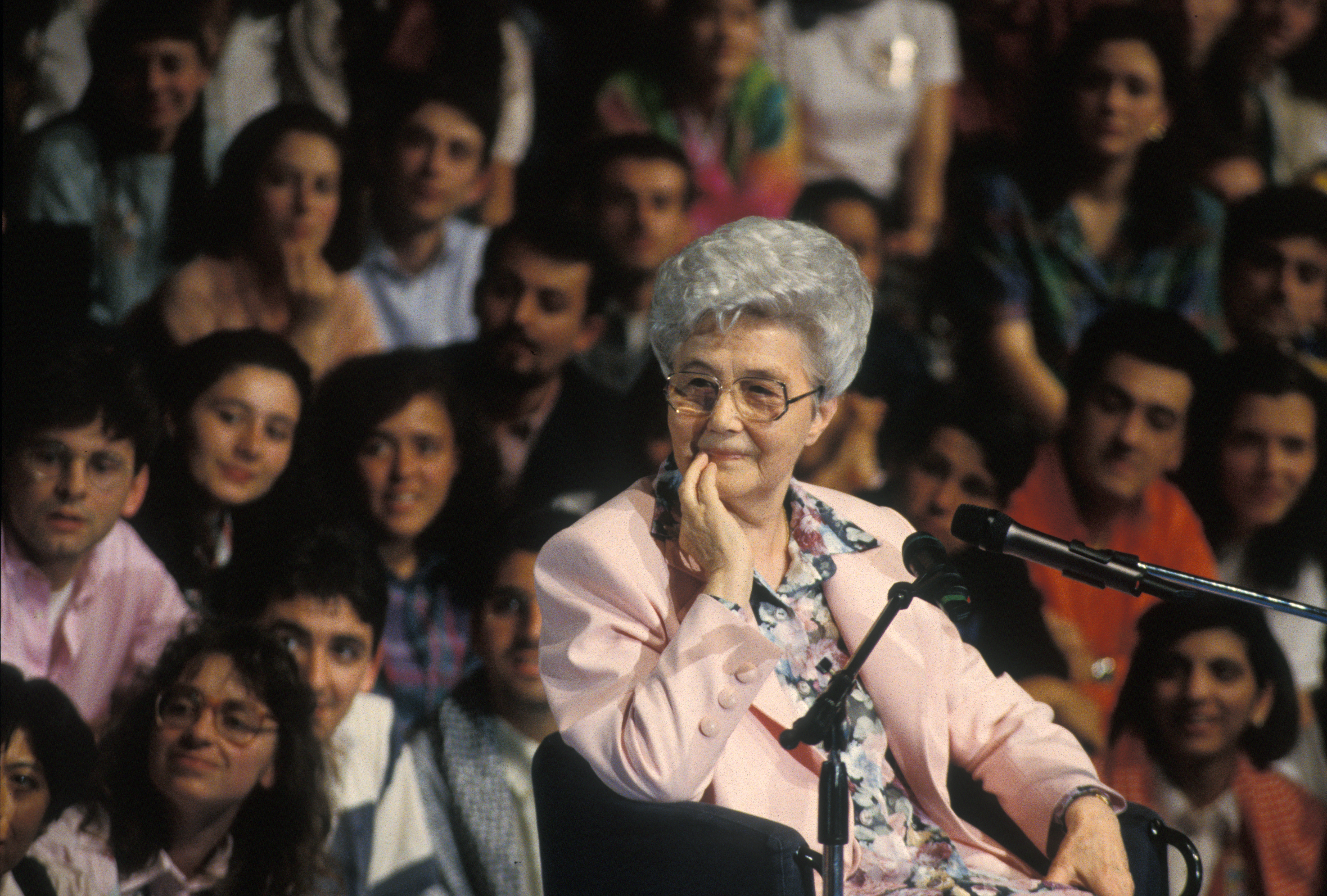 The Ministry of Education, University and Research (Italy) announced the national competition, open to Junior and Senior High Schools, on their website https://www.miur.gov.it/competizioni-e-concorsi-per-studenti highlighting the theme: “One city is not enough”. Chiara Lubich, Citizen of the World To discover her illustrious figure, her commitment and life witness on the occasion of the CENTENARY OF HER BIRTH with the aim of building Unity and Fraternity among peoples The competition is being promoted by the Chiara Lubich/New Humanity Centre and by the Trentino Historical Museum Foundation, in collaboration with the Ministry of Education, University Studies & Research, as part of the centenary celebrations of Chiara Lubich’s birth. Who is it for? It is aimed at students of all Italian junior and senior high schools whose participation consists of writing a paper (in the form of written text or a multimedia presentation) on one of the following topics: – Chiara Lubich in the context of the Second World War – Chiara Lubich and the collapse of the Berlin Wall – Chiara Lubich “Citizen of the World”, in dialogue with peoples and cultures In addition – and this is the fourth thematic area – students can narrate positive experiences they have personally lived, thus documenting chronicles that are of a positive nature, inspired by the message conveyed by Lubich’s writings. What are the aims of the competition? The competition aims to develop a spirit of initiative by creating situations of didactic conflict by writers still unexplored by standard textbooks; it aims to make Chiara Lubich known as a significant protagonist of the twentieth century through a profound understanding of her vision of “a united world”; it also aims to accompany new generations in their active pursuit of paths of peace and brotherhood between different cultures, languages, religions and peoples.
The Ministry of Education, University and Research (Italy) announced the national competition, open to Junior and Senior High Schools, on their website https://www.miur.gov.it/competizioni-e-concorsi-per-studenti highlighting the theme: “One city is not enough”. Chiara Lubich, Citizen of the World To discover her illustrious figure, her commitment and life witness on the occasion of the CENTENARY OF HER BIRTH with the aim of building Unity and Fraternity among peoples The competition is being promoted by the Chiara Lubich/New Humanity Centre and by the Trentino Historical Museum Foundation, in collaboration with the Ministry of Education, University Studies & Research, as part of the centenary celebrations of Chiara Lubich’s birth. Who is it for? It is aimed at students of all Italian junior and senior high schools whose participation consists of writing a paper (in the form of written text or a multimedia presentation) on one of the following topics: – Chiara Lubich in the context of the Second World War – Chiara Lubich and the collapse of the Berlin Wall – Chiara Lubich “Citizen of the World”, in dialogue with peoples and cultures In addition – and this is the fourth thematic area – students can narrate positive experiences they have personally lived, thus documenting chronicles that are of a positive nature, inspired by the message conveyed by Lubich’s writings. What are the aims of the competition? The competition aims to develop a spirit of initiative by creating situations of didactic conflict by writers still unexplored by standard textbooks; it aims to make Chiara Lubich known as a significant protagonist of the twentieth century through a profound understanding of her vision of “a united world”; it also aims to accompany new generations in their active pursuit of paths of peace and brotherhood between different cultures, languages, religions and peoples.  What resources are available to discuss the proposed topics? Chiara Lubich is quite a well-known figure, however, both teachers and students are free to contact the Chiara Lubich Centre by leaving a message on their website or by writing to: concorso.studenti@centrochiaralubich.org The Trentino Historical Museum Foundation will also inaugurate an international multimedia exhibition entitled “Chiara Lubich World City” (opening from 7 December 2019 until November 2020), which will include specific tours for schools. What are the terms and conditions for participating in the competition? Works that are strictly unpublished must be received by 31 March 2020. The competition announcement gives precise indications on the way the projects may be transmitted. The evaluation commission will be composed of members of the Ministry of Education, University Studies & Research, the Chiara Lubich/New Humanity Centre and the Trentino Historical Museum Foundation. How will the awards be conferred? Awards will be presented to the winning schools during an official ceremony to be held by the end of the 2019-2020 school year, most probably in Rome.
What resources are available to discuss the proposed topics? Chiara Lubich is quite a well-known figure, however, both teachers and students are free to contact the Chiara Lubich Centre by leaving a message on their website or by writing to: concorso.studenti@centrochiaralubich.org The Trentino Historical Museum Foundation will also inaugurate an international multimedia exhibition entitled “Chiara Lubich World City” (opening from 7 December 2019 until November 2020), which will include specific tours for schools. What are the terms and conditions for participating in the competition? Works that are strictly unpublished must be received by 31 March 2020. The competition announcement gives precise indications on the way the projects may be transmitted. The evaluation commission will be composed of members of the Ministry of Education, University Studies & Research, the Chiara Lubich/New Humanity Centre and the Trentino Historical Museum Foundation. How will the awards be conferred? Awards will be presented to the winning schools during an official ceremony to be held by the end of the 2019-2020 school year, most probably in Rome.
Maria Caterina Atzori (Project Lecturer – Chiara Lubich/New Humanity Centre)
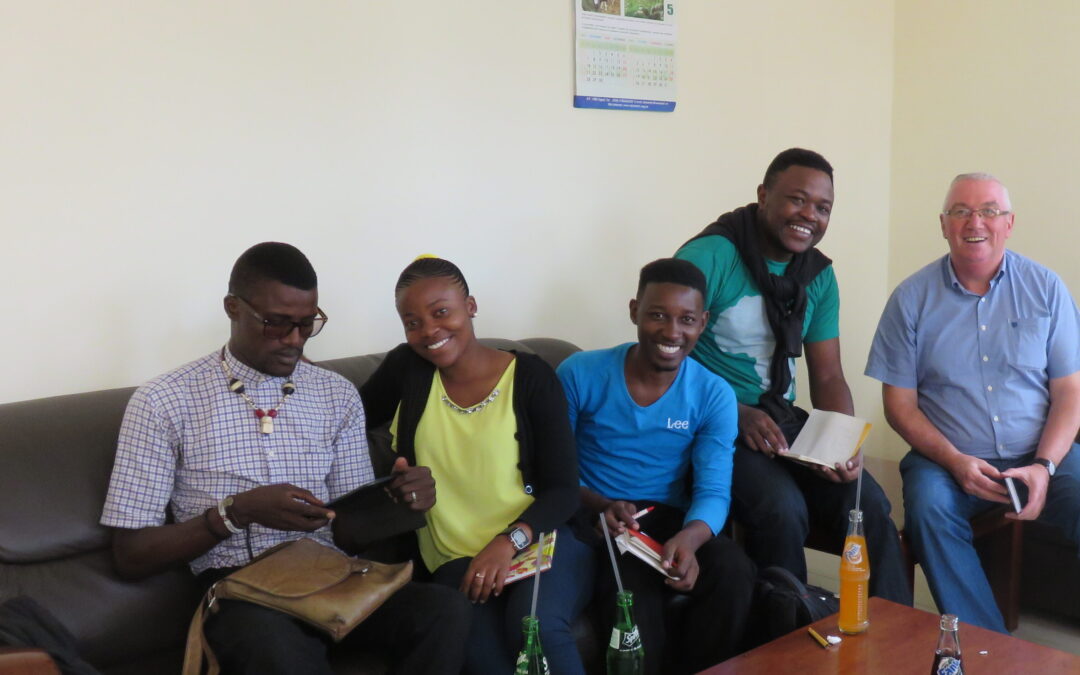
Sep 20, 2019 | Non categorizzato
Koen Vanreusel, a Belgian businessman who works for the Economy of Communion says: “We need collaboration between different generations in the business world.” 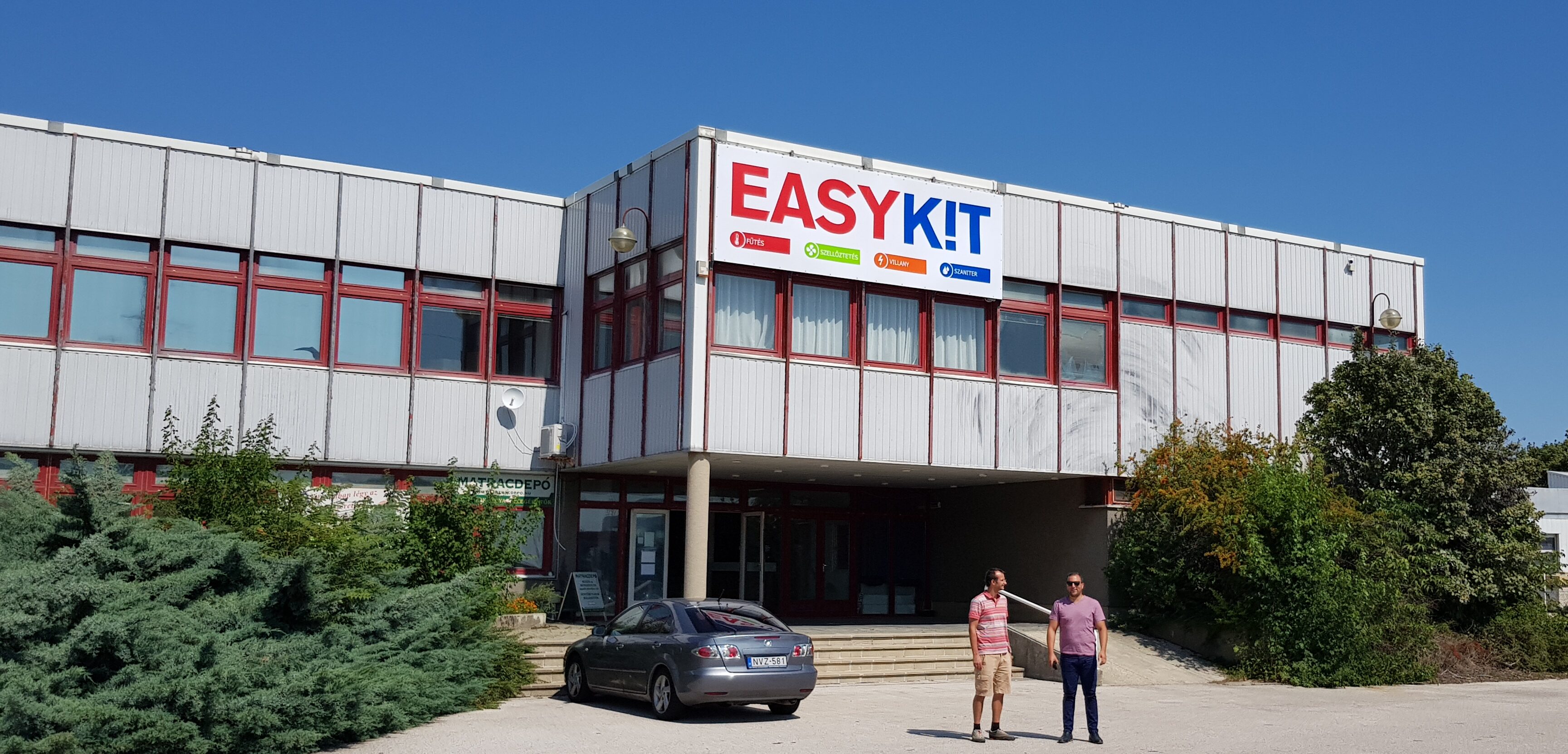 “We need young people to open up new ways of working; we older people are happy to support them through our work and by sharing what we have and what we know.” This is what Koen Vanreusel said when he spoke about his commitment to young business men and women all over the world. Koen has 4 children and 9 grandchildren and is the managing director of “Easykit”, a Belgian company which employs 100 people. His views stem from the fact he follows the principles of the Economy of Communion (EoC) and are the reason why he will be visiting Assisi, Italy, from March 26-28 2020 for “The Economy of Francis” gathering. This event was initiated by Pope Francis for young economists and business men and women from all over the world. Koen, how do the principles of the Economy of Communion inspire your work? The Economy of Communion is the fruit of the “culture of giving” which began within the Focolare Movement. Its roots lie within the Gospel, where it says “Give and it will be given to you” (Lk 6:36-38). This gives rise to a new economy – more specifically, an economy of communion. Practically, as regards my company, this means putting the person at the centre of the work and respecting each person’s dignity: with our employees we try to create a family, a community. We have nine stores in different places and we are always careful to create a good relationship with all the employees. In addition, joining the EoC means donating a part of the company’s profits each year to those in need and thus making a contribution to combating world poverty. What difficulties do you encounter in living the Economy of Communion at work and how do you overcome them? We are a company the same as any other on the market and we face the same difficulties. But when we have problems, we try to create an atmosphere in which we can talk to colleagues and management about the situation. I also find that it is important to share these experiences with other entrepreneurs who are followers of the EoC. When we meet, there is always a great sense of trust and so we talk about the difficulties and together we try to see what opportunities there are. How do you try to involve your employees in living the “culture of giving”? Our employees know that we share the company’s profits with the poor: we provide them with information about the support that the company is giving to others so that they too can feel involved. In addition, at the end of the year, when calculating profits to be shared with those in need, the employees receive a percentage and can decide to what they will donate this money. In this way, they participate in the allocation of the company’s profits. We also try to be role models and set an example by contributing something extra at work beyond the call of duty, by doing something free for a colleague or supplier and by showing that this also gives great joy. How did you come up with the idea of supporting businesses that have been started by young people both in European countries and on other continents?
“We need young people to open up new ways of working; we older people are happy to support them through our work and by sharing what we have and what we know.” This is what Koen Vanreusel said when he spoke about his commitment to young business men and women all over the world. Koen has 4 children and 9 grandchildren and is the managing director of “Easykit”, a Belgian company which employs 100 people. His views stem from the fact he follows the principles of the Economy of Communion (EoC) and are the reason why he will be visiting Assisi, Italy, from March 26-28 2020 for “The Economy of Francis” gathering. This event was initiated by Pope Francis for young economists and business men and women from all over the world. Koen, how do the principles of the Economy of Communion inspire your work? The Economy of Communion is the fruit of the “culture of giving” which began within the Focolare Movement. Its roots lie within the Gospel, where it says “Give and it will be given to you” (Lk 6:36-38). This gives rise to a new economy – more specifically, an economy of communion. Practically, as regards my company, this means putting the person at the centre of the work and respecting each person’s dignity: with our employees we try to create a family, a community. We have nine stores in different places and we are always careful to create a good relationship with all the employees. In addition, joining the EoC means donating a part of the company’s profits each year to those in need and thus making a contribution to combating world poverty. What difficulties do you encounter in living the Economy of Communion at work and how do you overcome them? We are a company the same as any other on the market and we face the same difficulties. But when we have problems, we try to create an atmosphere in which we can talk to colleagues and management about the situation. I also find that it is important to share these experiences with other entrepreneurs who are followers of the EoC. When we meet, there is always a great sense of trust and so we talk about the difficulties and together we try to see what opportunities there are. How do you try to involve your employees in living the “culture of giving”? Our employees know that we share the company’s profits with the poor: we provide them with information about the support that the company is giving to others so that they too can feel involved. In addition, at the end of the year, when calculating profits to be shared with those in need, the employees receive a percentage and can decide to what they will donate this money. In this way, they participate in the allocation of the company’s profits. We also try to be role models and set an example by contributing something extra at work beyond the call of duty, by doing something free for a colleague or supplier and by showing that this also gives great joy. How did you come up with the idea of supporting businesses that have been started by young people both in European countries and on other continents? 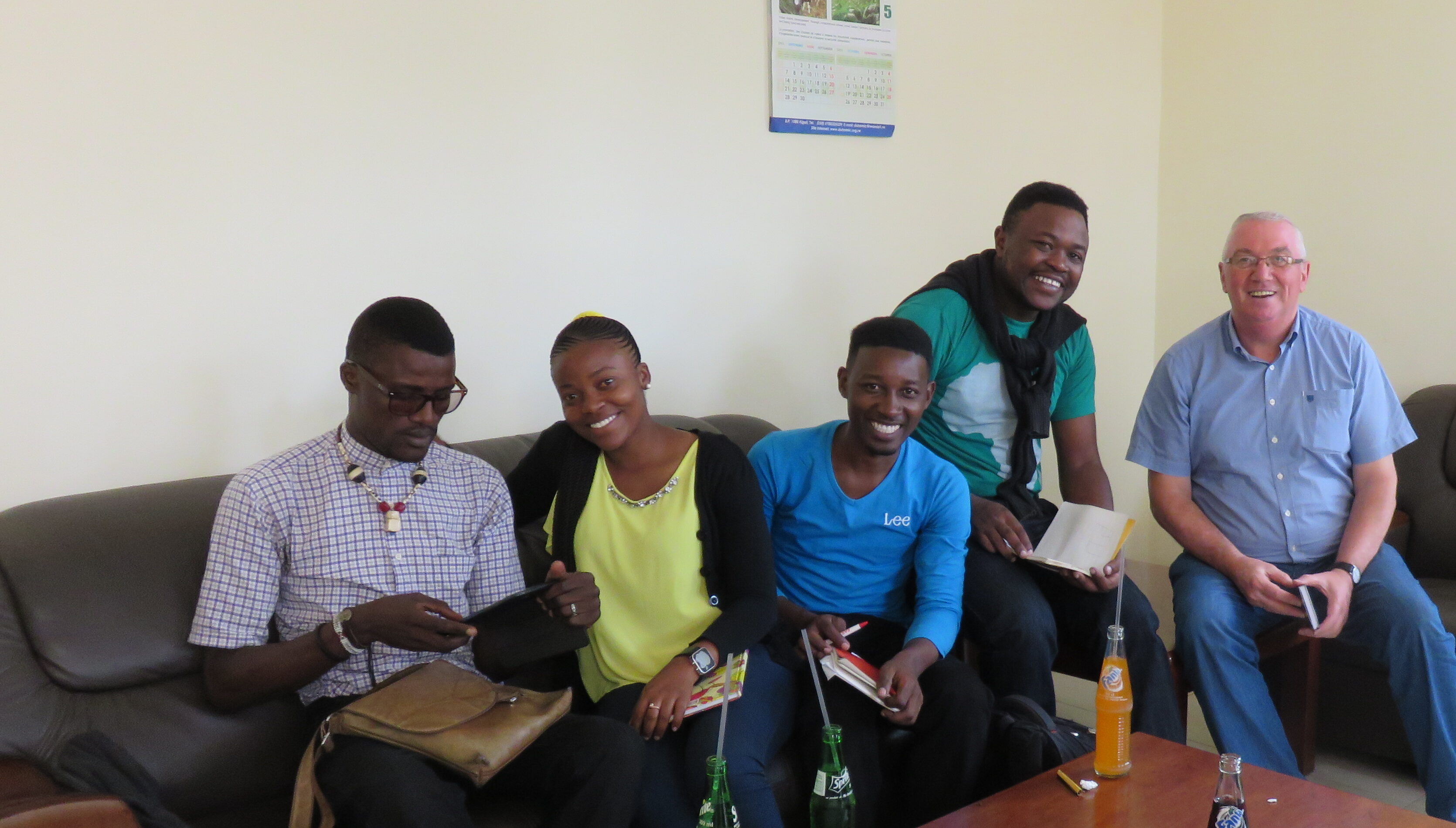 During one of the annual meetings of European EoC managers, we met young people from Serbia and Hungary who showed great appreciation for our business model and so we decided to share it with them. We supported them when they started a company in one of their own countries and continued to do so as the enterprise developed: we are very happy that this involvement means that we can share knowledge and our way of working. Then, during the EoC international meeting in Nairobi, Kenya, we met a group of young Congolese entrepreneurs who were determined not to abandon their war torn country but to stay and help people in need by starting a company. We felt we wanted to remain in contact with these young people and accompany them in their experience by offering them our skills. We want new generations of business men and women to join the Economy of Communion. What effects could the EoC paradigm have if applied on a large scale? It can help to build a fairer society with a smaller gap between rich and poor and a lower rate of poverty. By working together we can discover that a better world is possible. We will tell you about it in October, in Brussels, on a day dedicated to this very topic.
During one of the annual meetings of European EoC managers, we met young people from Serbia and Hungary who showed great appreciation for our business model and so we decided to share it with them. We supported them when they started a company in one of their own countries and continued to do so as the enterprise developed: we are very happy that this involvement means that we can share knowledge and our way of working. Then, during the EoC international meeting in Nairobi, Kenya, we met a group of young Congolese entrepreneurs who were determined not to abandon their war torn country but to stay and help people in need by starting a company. We felt we wanted to remain in contact with these young people and accompany them in their experience by offering them our skills. We want new generations of business men and women to join the Economy of Communion. What effects could the EoC paradigm have if applied on a large scale? It can help to build a fairer society with a smaller gap between rich and poor and a lower rate of poverty. By working together we can discover that a better world is possible. We will tell you about it in October, in Brussels, on a day dedicated to this very topic.
Claudia Di Lorenzi
Sep 18, 2019 | Non categorizzato
The Gospel makes the seed of goodness that God placed in every human heart sprout. It is a seed a hope that grows with each personal daily encounter with God’s love, flourishing with the love we have for each other. It spurs us to fight against the bad seeds of individualism and indifference, which cause isolation and conflict, and to carry each other’s burdens and encourage each other. Inheritance After our parents died, my sister and I – we’re both married – began to have misunderstandings about our inheritance, which we felt was not distributed correctly. It got to the point that we became enemies. It seemed so absurd to me, yet that’s the way it was. I gathered the courage and went to visit her. She was surprised, and happy enough to hug me. After each of us asked each other’s forgiveness, we decided to take our mother’s jewels that we had received and donate them to a charity. After that we felt free: generosity towards others had brought us closer to each other, and we also felt closer to our parents in paradise. (F., France) Whatever I have extra isn’t mine Some time ago, when we used to spend the night at a migrant centre, early one morning Gabriele and I, after spending the night there, accompanied a priest and some teens who had been guests to the door. They were leaving to get their documentation. It was cold, and we were dressed for it, but one of the teens only had a light T-shirt on. I asked him if he was cold but realised from the look he gave me that he could not understand my question. So I took off my coat (I had a heavy jumper underneath) and gave it to him. Gabriele gave him some money to buy something during the day. I got back home with a great joy in my heart. At home, my wife told me that for a while her sister wanted to give me a gift, and she had chosen a coat. (Rosario, Italy) Children of God Like most mornings, getting on the subway full of all kinds of people, who as usual were planning on reading or busy with their smartphones, I felt a sense of pain and sadness. Do they know what to live for? Do they have an ideal in life? But then I thought, each of them will have had hardship in life, and perhaps right now one of them is suffering with something… And I began to see them differently: no longer as poor people, but as children of God, who loves and supports each of them. (T., Italy) Sharing I was at university for an exam when I saw that an accountant had come looking for a student who had not paid his student fees. Seeing that right then I had some money in my pocket, I asked that student if I could pay for him. From that moment on, we were friends. Getting to know him better, I learned that he was an orphan who had lost both his parents and looking for some work to pay for university accommodation. I shared his need with other friends, and we committed to helping him both economically and spiritually. (Steve, Burundi)
Chiara Favotti
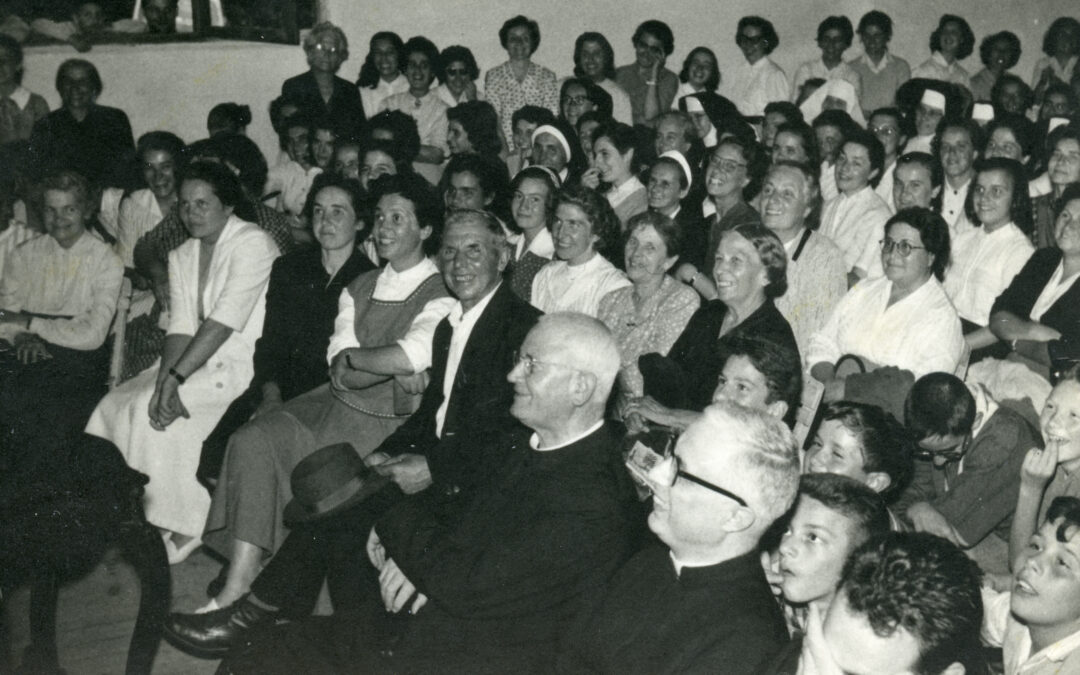
Sep 17, 2019 | Non categorizzato
In order to carry out his mission to reform the Church, the Italian Jesuit Father Riccardo Lombardi (1908-1979), tried to mobilize the crowds by preaching in the squares and on the radio. Forty years after his death on September 9th, 2019 in Rome, a conference was held to rediscover this charismatic figure who also played an important role in the history of the Focolare. 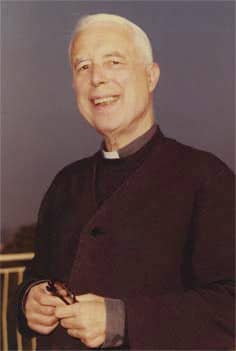 The greatness and – we could even dare to say – the holiness of charismatic figures can be verified when God puts them to the test by taking away their health, their inspiration or even the work they founded. This gospel logic can be clearly seen in the life of Father Riccardo Lombardi, an Italian Jesuit, a great preacher and founder of the Movement for a Better World. This was highlighted by a conference in Rome organized by his Movement, 40 years after his death, in collaboration with the Focolare and the Community of Sant’Egidio. Faced with the power of self-destruction achieved by man and in the rubble at the end of the Second World War, Lombardi became a preacher of universal fraternity in the squares and on the radio, an activity for which they called him “God’s microphone”. After a famous exhortation that Pope Pius XII addressed to the Diocese of Rome in 1952, Father Lombardi wanted to create a group of people who would renew the Church according to a spirituality of communion. Andrea Riccardi, historian and founder of the Community of Sant’Egidio, stressed during the conference that Lombardi did and said what Pope Pius XII could not say and do publicly and thus also became the “microphone of the Pope”, to whom Lombardi was particularly attached.
The greatness and – we could even dare to say – the holiness of charismatic figures can be verified when God puts them to the test by taking away their health, their inspiration or even the work they founded. This gospel logic can be clearly seen in the life of Father Riccardo Lombardi, an Italian Jesuit, a great preacher and founder of the Movement for a Better World. This was highlighted by a conference in Rome organized by his Movement, 40 years after his death, in collaboration with the Focolare and the Community of Sant’Egidio. Faced with the power of self-destruction achieved by man and in the rubble at the end of the Second World War, Lombardi became a preacher of universal fraternity in the squares and on the radio, an activity for which they called him “God’s microphone”. After a famous exhortation that Pope Pius XII addressed to the Diocese of Rome in 1952, Father Lombardi wanted to create a group of people who would renew the Church according to a spirituality of communion. Andrea Riccardi, historian and founder of the Community of Sant’Egidio, stressed during the conference that Lombardi did and said what Pope Pius XII could not say and do publicly and thus also became the “microphone of the Pope”, to whom Lombardi was particularly attached.
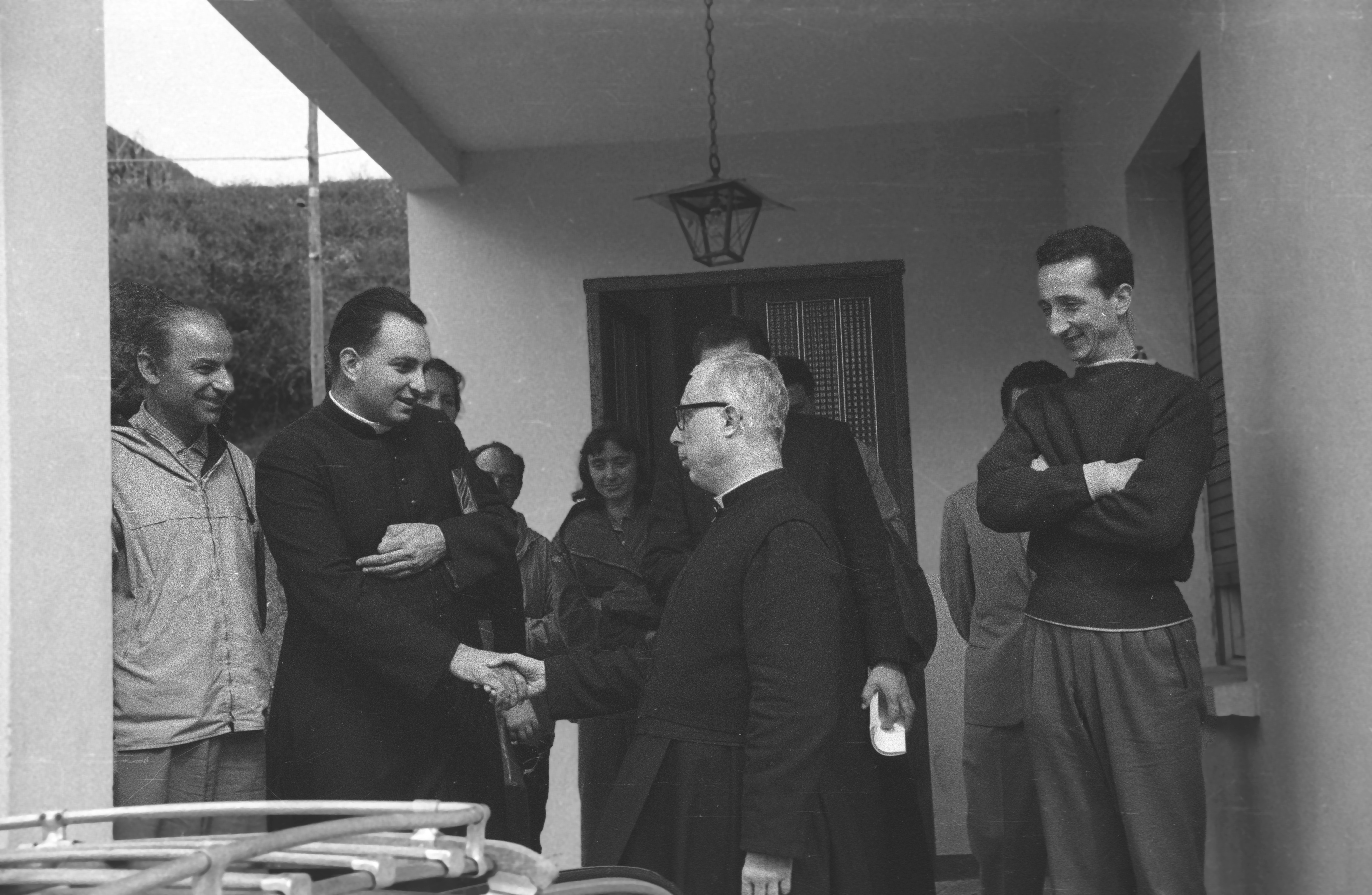
©CSC media
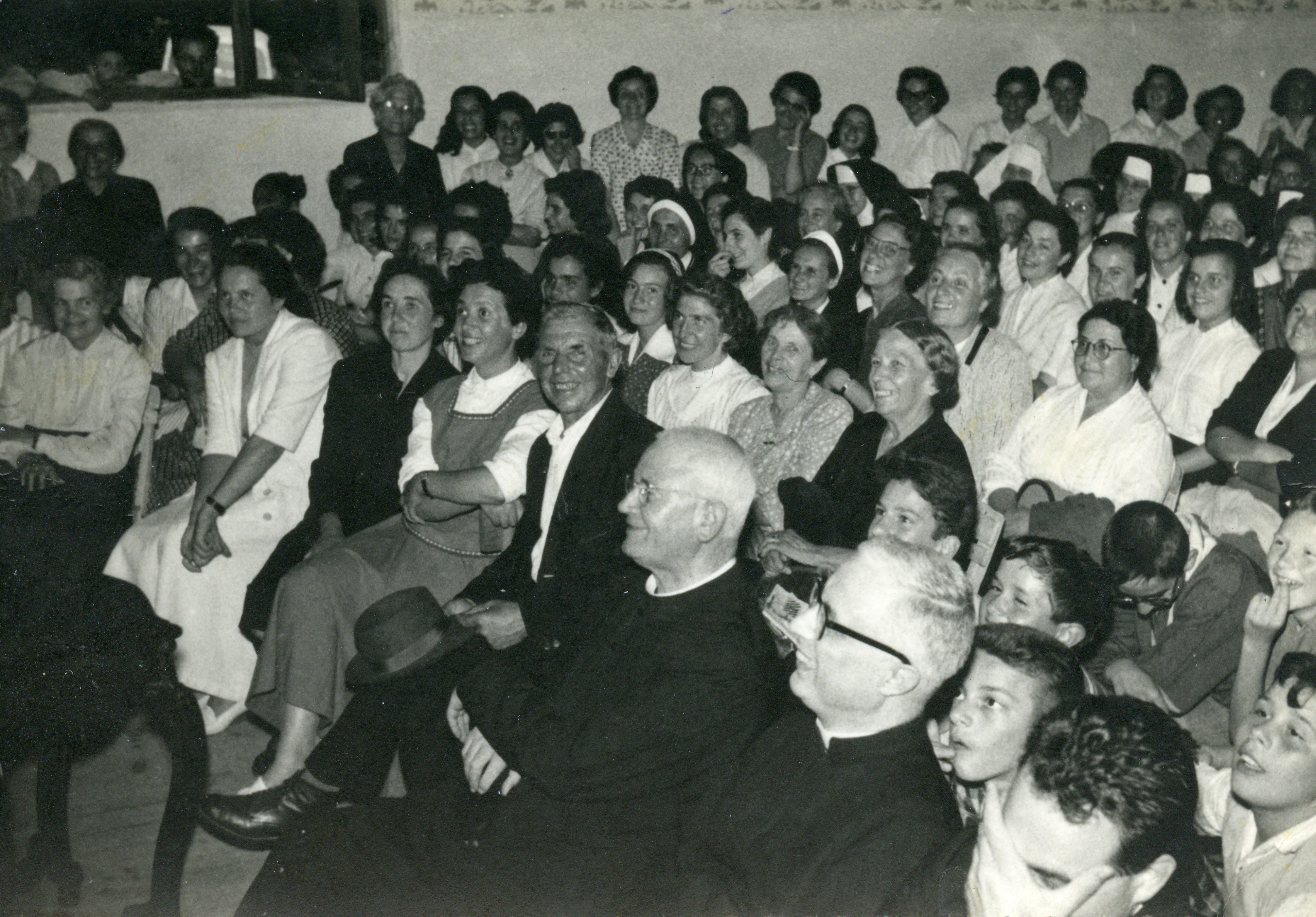
©CSC media
Joachim Schwind

Sep 15, 2019 | Non categorizzato
At the conclusion of their assembly, Focolare youth presented to the Movement a summary document of a process which was not always smooth. It will contribute to the international annual meeting of delegates from around the world just underway in Italy. The timing could not have been better: the last two days of the Focolare Youth Assembly, Saturday 14 and Sunday 15 September, coincided with the first two days of the annual meeting of delegates of the Focolare Movement from around the world. This gave the 190 youth of 66 countries from the various sections of the Movement the possibility to present to a truly representative international Focolare forum the summary of their work on the identity, formation and role in the Movement of young people and their commitment in the world. The 44 delegates representing the geographical regions of the Focolare welcomed this opportunity to more fully appreciate the sensitivities, hopes and expectations of the new generations. The impact of Saturday morning, 14 September, was strongly felt. The final document produced by the young people, and the questions they directed at the “more mature generations”, as they light-heartedly called them, indicate how challenging their task had proved to be. In the course of only a few days, they experienced and faced up to their many differences of background, culture, sensitivity, religion and beliefs. With authenticity and courage they considered difficulties and open questions which provoked concern and suffering in many of the participants. What was even more striking in this process was the human and spiritual depth evident throughout their work: a profoundly felt and tireless desire to dedicate all areas of their life to the goal of unity on a big scale, a more “united world”, and their readiness to approach painful situations with a preferential love for Jesus in his abandonment on the cross. On this solid basis, the young participants enthusiastically encouraged the whole Movement to appreciate diversity as an integral and essential part of any experience of unity, and to create spaces and tools to better facilitate dialogue on controversial subjects. They requested more participation in the direction of the Movement both at local and central levels in order to be able to share in the responsibility for the future generations. But with the same frankness, they expressed their own need to be better formed in the spirituality of the Focolare and to deepen their relationship with the older generations in the Movement. In response, Focolare President and Co-President, Maria Voce e Jesús Morán highlighted the importance and maturity of the experience these young people have shared in just a few days. They recognized in this Assembly and its final document “a fundamental step ahead and a great legacy for the Movement”. 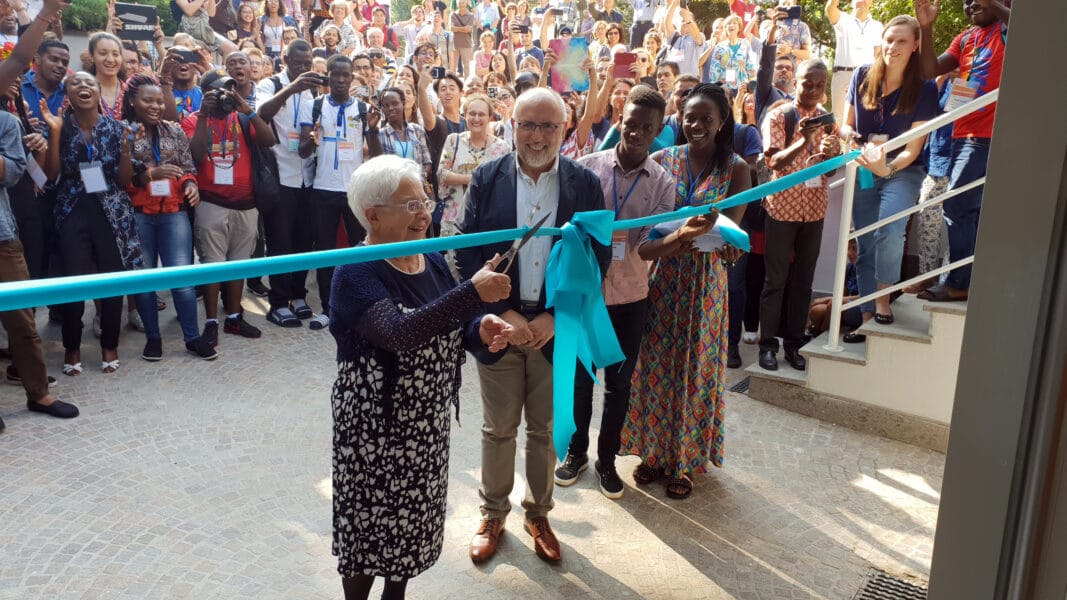 The afternoon of this memorable day was dedicated to the inauguration of the restructured auditorium of the international headquarters of the Focolare Movement in Rocca di Papa (near Rome, Italy). It was also the occasion for Maria Voce to present to both assemblies the thematic spiritual talk for the forthcoming year, centred on the reality of Jesus present in the midst of “two or three united in his name” (cf Mt 18:20). This is the Alpha and Omega of the Movement’s spirituality, declared Focolare President, as she spoke movingly and very personally, at this the start of the final year of her term of office.
The afternoon of this memorable day was dedicated to the inauguration of the restructured auditorium of the international headquarters of the Focolare Movement in Rocca di Papa (near Rome, Italy). It was also the occasion for Maria Voce to present to both assemblies the thematic spiritual talk for the forthcoming year, centred on the reality of Jesus present in the midst of “two or three united in his name” (cf Mt 18:20). This is the Alpha and Omega of the Movement’s spirituality, declared Focolare President, as she spoke movingly and very personally, at this the start of the final year of her term of office.  Living mutual love even in the most painful moments, creating space for Jesus to be present among people today, transmitting his joy to them: this is the pathway Mary Voce invites the Focolare to journey along in the forthcoming months. For the youth Assembly participants, it could also be a key to understanding the experience of these intense days together. For the international delegates, it will give impetus to their consultations now getting underway.
Living mutual love even in the most painful moments, creating space for Jesus to be present among people today, transmitting his joy to them: this is the pathway Mary Voce invites the Focolare to journey along in the forthcoming months. For the youth Assembly participants, it could also be a key to understanding the experience of these intense days together. For the international delegates, it will give impetus to their consultations now getting underway.
Joachim Schwind
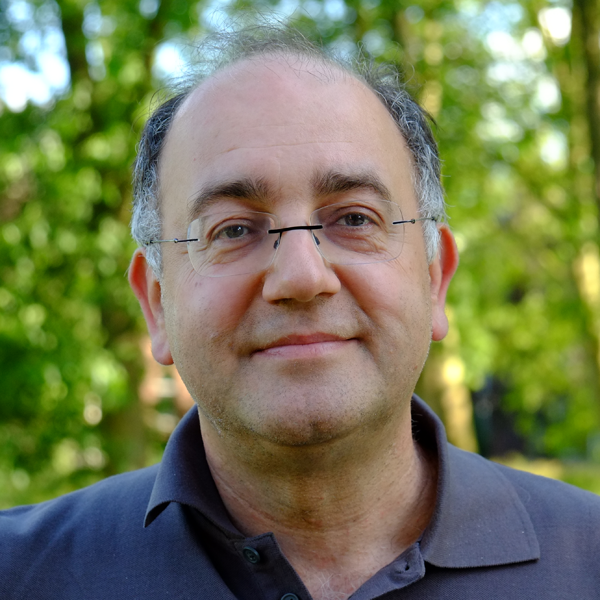
Sep 13, 2019 | Non categorizzato
To heal the employment crisis we need a new economy, and to build one we need to give young people space and a voice. More than anyone, they understand what’s new and how to carry it out. This is one of the goals of the “Economy of Francis” event to be held in Assisi in 2020. In May 2019, unemployment went down in Europe. According to Eurostat, it went down to 7.5% in the 19 countries of the Eurozone and to 6.3% in the 28 countries of European Union. This still contrasts with the high cost of youth unemployment, and despite the improvement in the numbers, this still calls for more effective policy. We discussed it with Luigino Bruni, economist at Lumsa University in Rome and scientific director of the committee organising “The Economy of Francesco”, an event called for by the pope and dedicated to young economists and entrepreneurs from all over the world, to be held in Assisi from 26–28 March 2020. 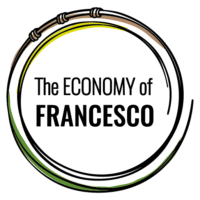 What do you think we can expect from this event? I think there will be great leadership by young people both in thought and practice. They will share their ideas about the world, which they are already changing, concerning the environment, the economy, development, poverty. It will not be a conference, but the start of a process, although one with a slow pace that allows us to think and ask ourselves, for example, in St. Francis’ homeland and footsteps, what it means to build a new economy, and who the marginalised of today really are. It will be primarily a moment in which young people draw up a solemn pact with Pope Francis, assuring him of their commitment to change the economy. This will be the heart of the event. After all, young people have clear ideas about… Young people make things interesting. They are the first to react to changes, because they’re the ones who most understand them. There are so many valuable experiences throughout the world in business and start-ups. Young people think about the economy differently, but the adults – who have the power and university chairs – are not able to listen and give them space. Their thinking is 20 years behind the times, while young people have something to say. In Assisi they will be the ones to speak; the adults will make themselves available to support and listen.
What do you think we can expect from this event? I think there will be great leadership by young people both in thought and practice. They will share their ideas about the world, which they are already changing, concerning the environment, the economy, development, poverty. It will not be a conference, but the start of a process, although one with a slow pace that allows us to think and ask ourselves, for example, in St. Francis’ homeland and footsteps, what it means to build a new economy, and who the marginalised of today really are. It will be primarily a moment in which young people draw up a solemn pact with Pope Francis, assuring him of their commitment to change the economy. This will be the heart of the event. After all, young people have clear ideas about… Young people make things interesting. They are the first to react to changes, because they’re the ones who most understand them. There are so many valuable experiences throughout the world in business and start-ups. Young people think about the economy differently, but the adults – who have the power and university chairs – are not able to listen and give them space. Their thinking is 20 years behind the times, while young people have something to say. In Assisi they will be the ones to speak; the adults will make themselves available to support and listen.  Why haven’t the economic recipes that have been put forward to solve the unemployment crisis been working? The data from Eurostat, the European Union’s statistics office, needs to be read with caution: the fact that European unemployment has decreased does not mean that employment has increased. In Italy, for example, there are many people who are no longer searching for work. In addition, people are working less because many contracts are for a smaller number of hours in order to give jobs to more people. Today machines are doing jobs that up until 10 years ago were carried out by people. Robots are our allies, but we need to invent new jobs, because the traditional ones are no longer able to take in enough work. The new tools end up naturally selecting workers, favouring the most competent, since there are less and less people who are able to compete with the machines. This means that less people are working and those who do are the most expert, which creates inequalities. So a social pact is necessary to make sure that everyone has access to paid jobs, creating new types of new jobs. So we need a new approach? In just a few short years we have gone through epochal change at an extraordinary pace. But the way we think and the systems we have change much slower, and this contrast is what causes a crisis. So we need to work more at a cultural, scientific and research level, because – as Pope Francis says – the world suffers from a lack of thinking that is appropriate for today.
Why haven’t the economic recipes that have been put forward to solve the unemployment crisis been working? The data from Eurostat, the European Union’s statistics office, needs to be read with caution: the fact that European unemployment has decreased does not mean that employment has increased. In Italy, for example, there are many people who are no longer searching for work. In addition, people are working less because many contracts are for a smaller number of hours in order to give jobs to more people. Today machines are doing jobs that up until 10 years ago were carried out by people. Robots are our allies, but we need to invent new jobs, because the traditional ones are no longer able to take in enough work. The new tools end up naturally selecting workers, favouring the most competent, since there are less and less people who are able to compete with the machines. This means that less people are working and those who do are the most expert, which creates inequalities. So a social pact is necessary to make sure that everyone has access to paid jobs, creating new types of new jobs. So we need a new approach? In just a few short years we have gone through epochal change at an extraordinary pace. But the way we think and the systems we have change much slower, and this contrast is what causes a crisis. So we need to work more at a cultural, scientific and research level, because – as Pope Francis says – the world suffers from a lack of thinking that is appropriate for today.
Claudia Di Lorenzi
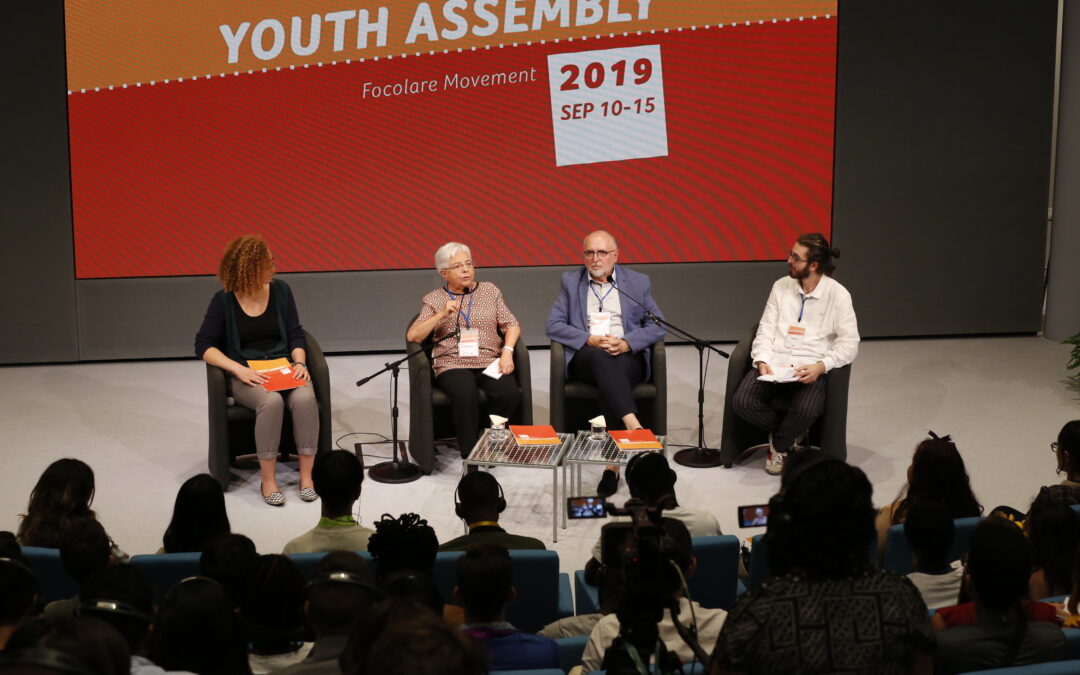
Sep 11, 2019 | Non categorizzato
With these three words the president of the Focolare opened the movement’s Youth Assembly which runs from 10 to 15 September. 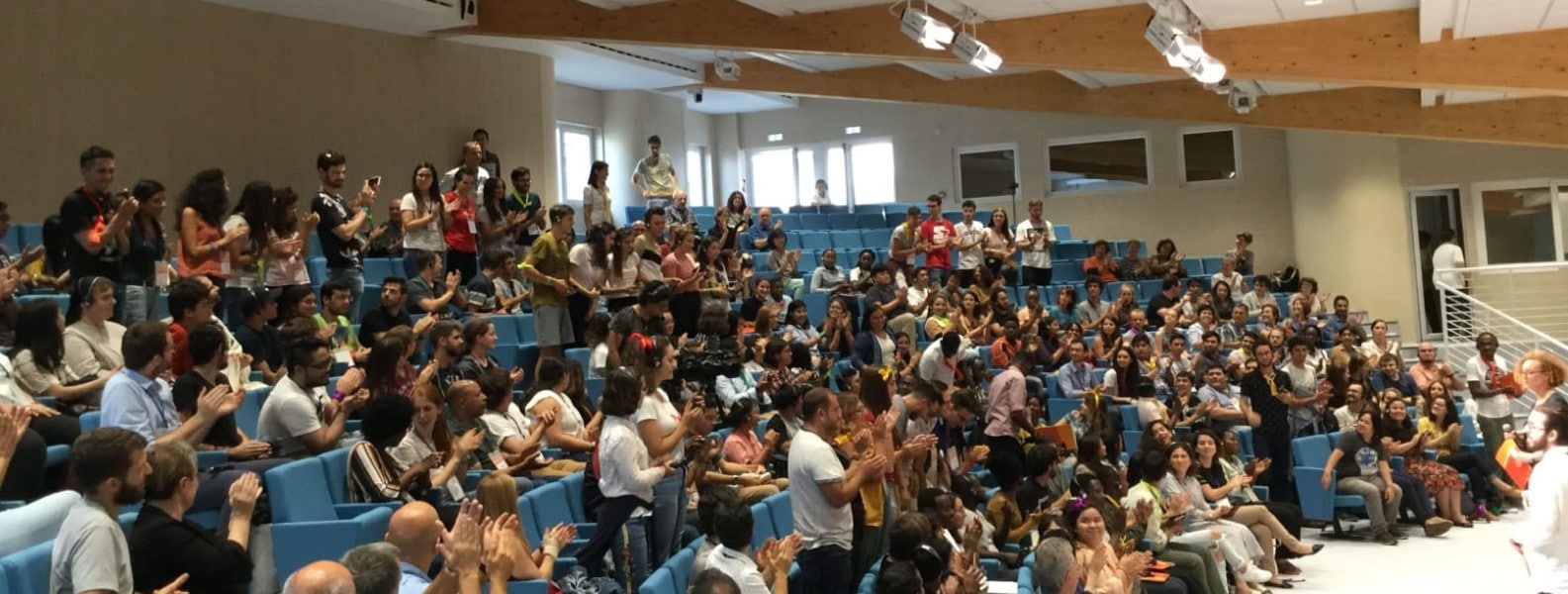 As the 190 delegates were being introduced to Focolare President Maria Voce and Co-President Jesús Morán, the overwhelming impression was of a parliament for the under-30s, serving not a single nation but the whole world. These young members of the Focolare Movement from 67 different countries have convened in Castel Gandolfo, near Rome, Italy, for the Foocolare’s first Youth Assembly of Gen, young religious men and women, seminarians, together with youth active in the Parish and Diocesan movements of the Focolare. “We’re not only here to organize and plan, but mainly to get to know each other and communicate what is actually motivating us, what’s at the heart of our choice to work towards a more united world,” explained one of the Assembly team.
As the 190 delegates were being introduced to Focolare President Maria Voce and Co-President Jesús Morán, the overwhelming impression was of a parliament for the under-30s, serving not a single nation but the whole world. These young members of the Focolare Movement from 67 different countries have convened in Castel Gandolfo, near Rome, Italy, for the Foocolare’s first Youth Assembly of Gen, young religious men and women, seminarians, together with youth active in the Parish and Diocesan movements of the Focolare. “We’re not only here to organize and plan, but mainly to get to know each other and communicate what is actually motivating us, what’s at the heart of our choice to work towards a more united world,” explained one of the Assembly team. 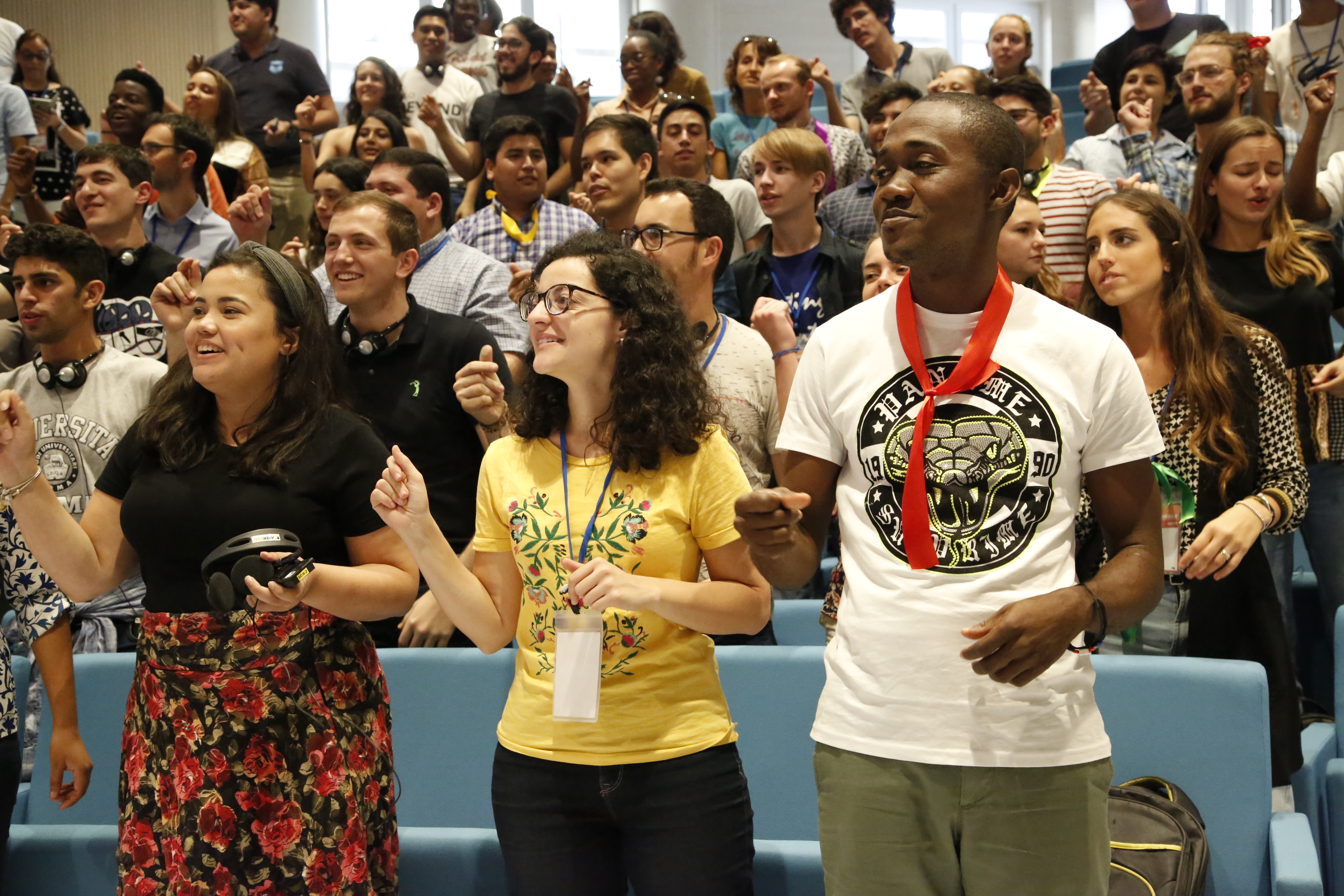 The delegates are drawn from different geographical, cultural and religious backgrounds. They are active in areas such as justice and peace, disarmament, humane economy, environmental campaigning, dialogue between religions and ethnic groups. Many have been involved in challenging summer projects such as the Gen Congress in Amman, Jordan for young Focolare members in different nations of the Middle East and beyond; another in Oceania; workshops tackling legal and economic inequalities, as well as summer-camps organized by the Parish and Diocesan Movements. The Assembly is designed to promote sharing, learning and planning, drawing on the support of experts. It is distinctly “hands-on”. For example tackling issues of identity and life choices (with Fr Vincenzo Di Pilato); how to be protagonists and effective leaders (with Jonathon Michelon); witnessing and participation (with Sr Alessandra Smerilli). The Catholic Church’s recent synod dedicated to youth led to the popularly-received “Christus Vivit” document, which will also be discussed during the workshops (with Francisco Canzani).
The delegates are drawn from different geographical, cultural and religious backgrounds. They are active in areas such as justice and peace, disarmament, humane economy, environmental campaigning, dialogue between religions and ethnic groups. Many have been involved in challenging summer projects such as the Gen Congress in Amman, Jordan for young Focolare members in different nations of the Middle East and beyond; another in Oceania; workshops tackling legal and economic inequalities, as well as summer-camps organized by the Parish and Diocesan Movements. The Assembly is designed to promote sharing, learning and planning, drawing on the support of experts. It is distinctly “hands-on”. For example tackling issues of identity and life choices (with Fr Vincenzo Di Pilato); how to be protagonists and effective leaders (with Jonathon Michelon); witnessing and participation (with Sr Alessandra Smerilli). The Catholic Church’s recent synod dedicated to youth led to the popularly-received “Christus Vivit” document, which will also be discussed during the workshops (with Francisco Canzani). 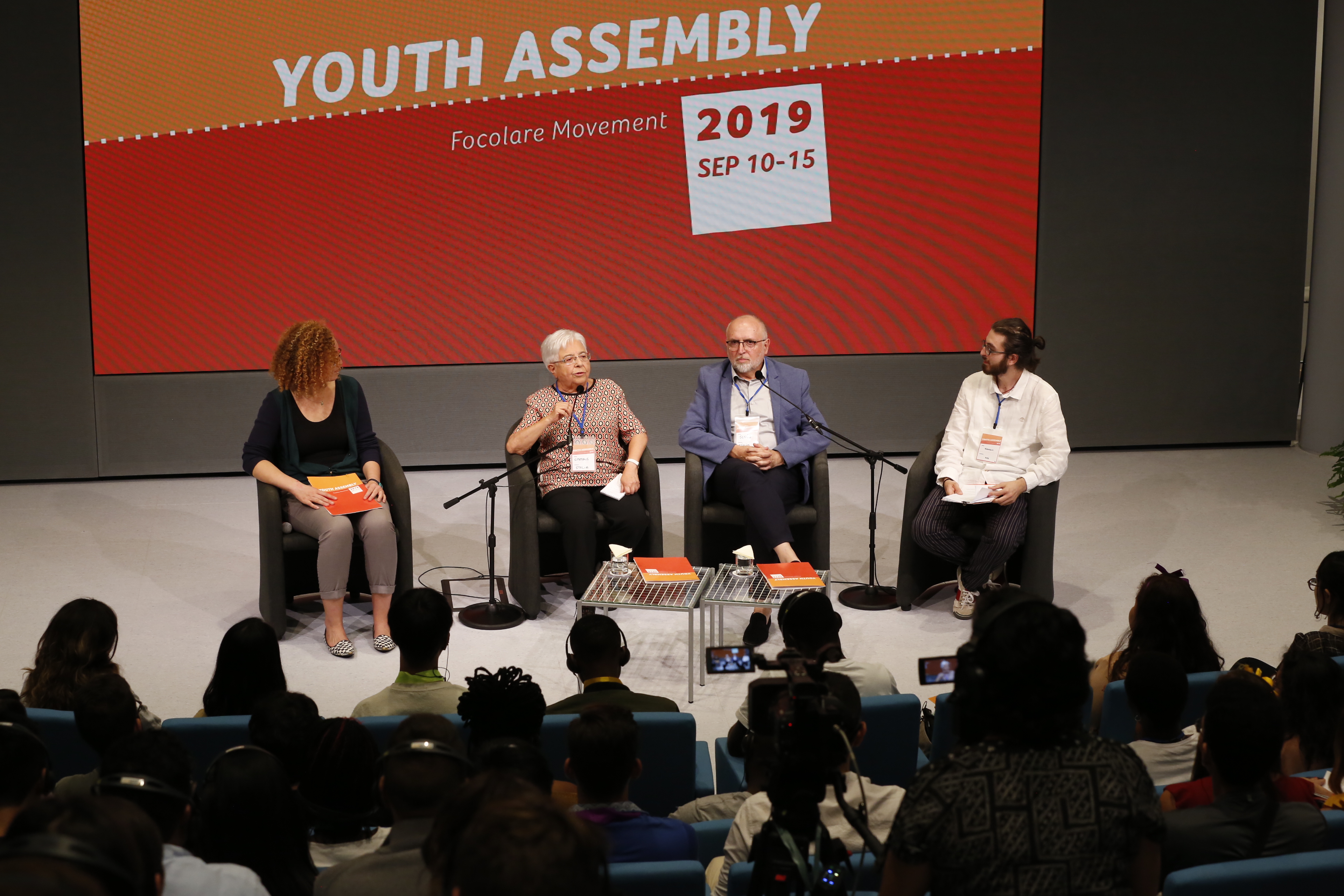 To guide all this activity, the Focolare President proposed three key words: unity, courage, communication. Unity – Maria Voce encouraged the young people to “forget” where and what they come from, in order to be able to live complete mutual love and so experience the unity that comes from this. Courage – “I expect you to have such courage. I also expect your courage to test and challenge the rest of us”. Inviting them to speak out and share, she encouraged them not to shy away from making criticisms, but always to express them in “a constructive spirit”. Finally, she urged them to communicate the charism of unity. “You must be prepared to give what you have received to the new generations. This communication can only happen through people who live the spirituality, who want this charism and who then communicate it”. Everything covered during the Assembly will be summarized in a final document containing the contributions and concerns of the young generation of the Focolare as they seek ways of working ever more closely together for their shared goal.
To guide all this activity, the Focolare President proposed three key words: unity, courage, communication. Unity – Maria Voce encouraged the young people to “forget” where and what they come from, in order to be able to live complete mutual love and so experience the unity that comes from this. Courage – “I expect you to have such courage. I also expect your courage to test and challenge the rest of us”. Inviting them to speak out and share, she encouraged them not to shy away from making criticisms, but always to express them in “a constructive spirit”. Finally, she urged them to communicate the charism of unity. “You must be prepared to give what you have received to the new generations. This communication can only happen through people who live the spirituality, who want this charism and who then communicate it”. Everything covered during the Assembly will be summarized in a final document containing the contributions and concerns of the young generation of the Focolare as they seek ways of working ever more closely together for their shared goal.
Stefania Tanesini
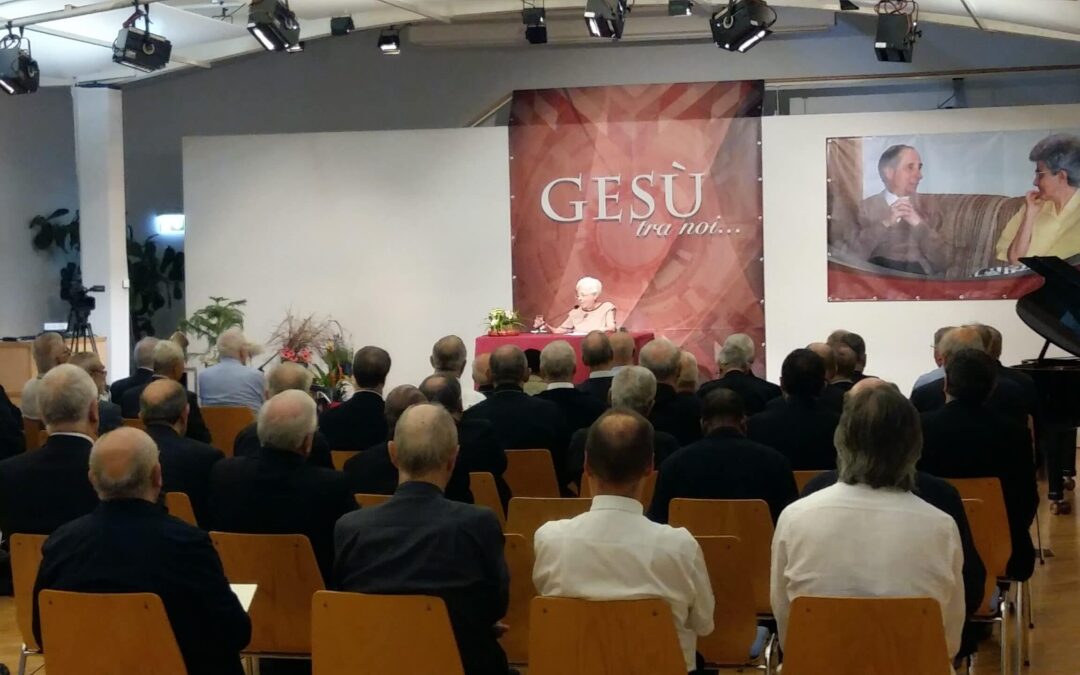
Sep 10, 2019 | Non categorizzato
In Austria 61 Catholic Bishops who are friends of the Focolare Movement gathered together for an international meeting. The Church’s “wounds” and the challenges faced by Christian communities today were at the heart of their reflections in a meeting enriched by spiritual insights and sharing fraternal life. 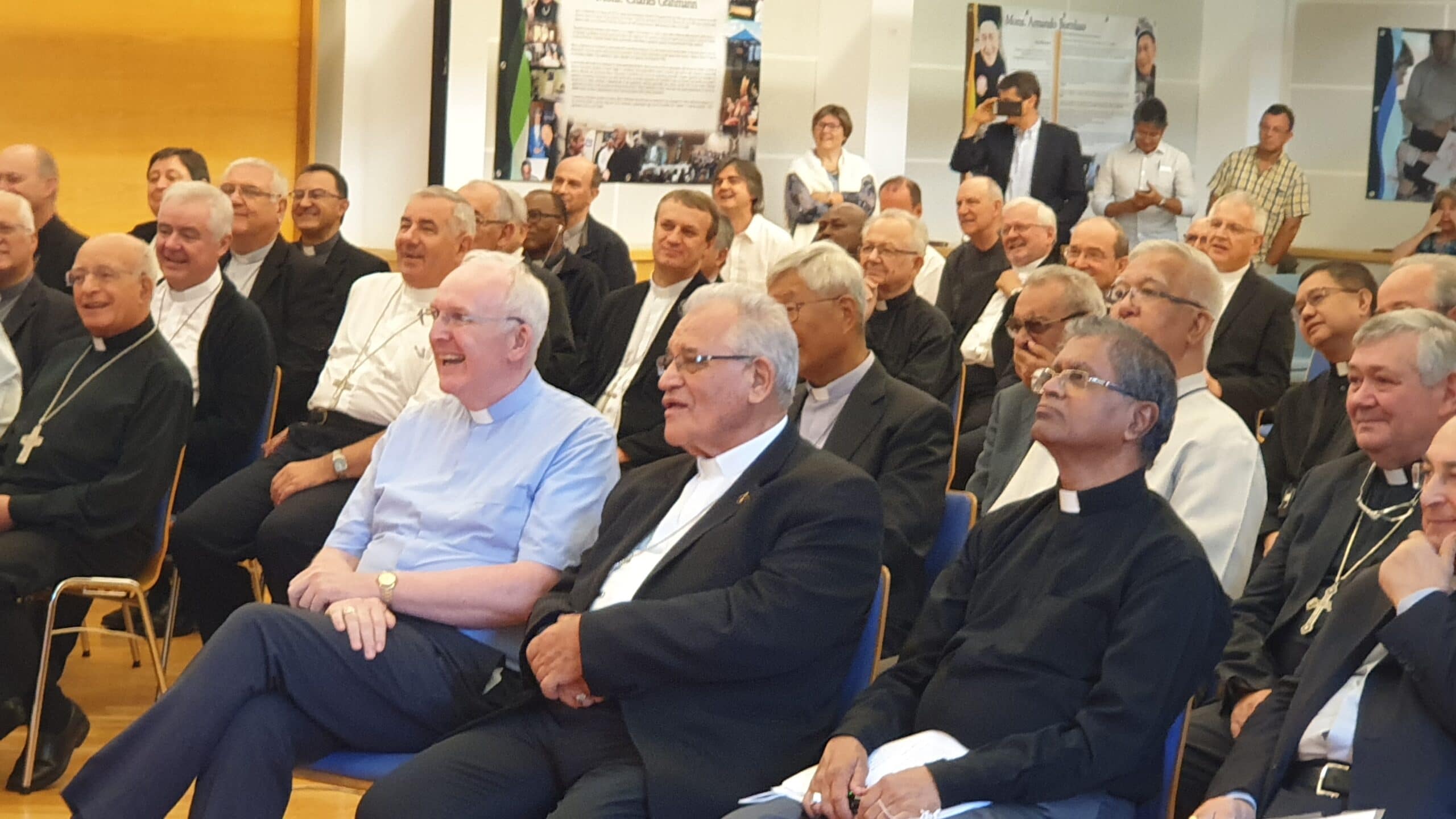 A kind of tsunami has struck the Church as a institution in recent years. The revelation of scandalous abuses has shaken the credibility of the Church to its very core, a Church that for some time has seemed to be in decline in many traditionally Christian countries. And this is not the only scourge afflicting Christian communities across the world. Urbanisation, poverty, war, corruption in society and the Church itself, political and cultural pressures, all kinds of intolerances and religious fundamentalism, a lack of opportunities for development and serious risks to the environment are leaving many people hopeless and overwhelmed. These are just some of the “wounds” that 61 Bishops from four continents who know and live the spirituality of the Focolare shared when they met from 2 to 10 August near Graz in Austria. Even though they came together primarily for a meeting to deepen their spirituality and live fraternity together for a few days, they listened together to the “cry” of their people. Otherwise, how else could they be witnesses of a crucified and risen God who took on every evil and responded to it?! We must not stop at theories – they said – or give in to pessimism but go to the roots. On the Church front, individualism and clericalism were highlighted, a lack of formation and coherent witness, the need for solid spirituality and accompaniment, the need to grow in the capacity to listen and dialogue.
A kind of tsunami has struck the Church as a institution in recent years. The revelation of scandalous abuses has shaken the credibility of the Church to its very core, a Church that for some time has seemed to be in decline in many traditionally Christian countries. And this is not the only scourge afflicting Christian communities across the world. Urbanisation, poverty, war, corruption in society and the Church itself, political and cultural pressures, all kinds of intolerances and religious fundamentalism, a lack of opportunities for development and serious risks to the environment are leaving many people hopeless and overwhelmed. These are just some of the “wounds” that 61 Bishops from four continents who know and live the spirituality of the Focolare shared when they met from 2 to 10 August near Graz in Austria. Even though they came together primarily for a meeting to deepen their spirituality and live fraternity together for a few days, they listened together to the “cry” of their people. Otherwise, how else could they be witnesses of a crucified and risen God who took on every evil and responded to it?! We must not stop at theories – they said – or give in to pessimism but go to the roots. On the Church front, individualism and clericalism were highlighted, a lack of formation and coherent witness, the need for solid spirituality and accompaniment, the need to grow in the capacity to listen and dialogue. 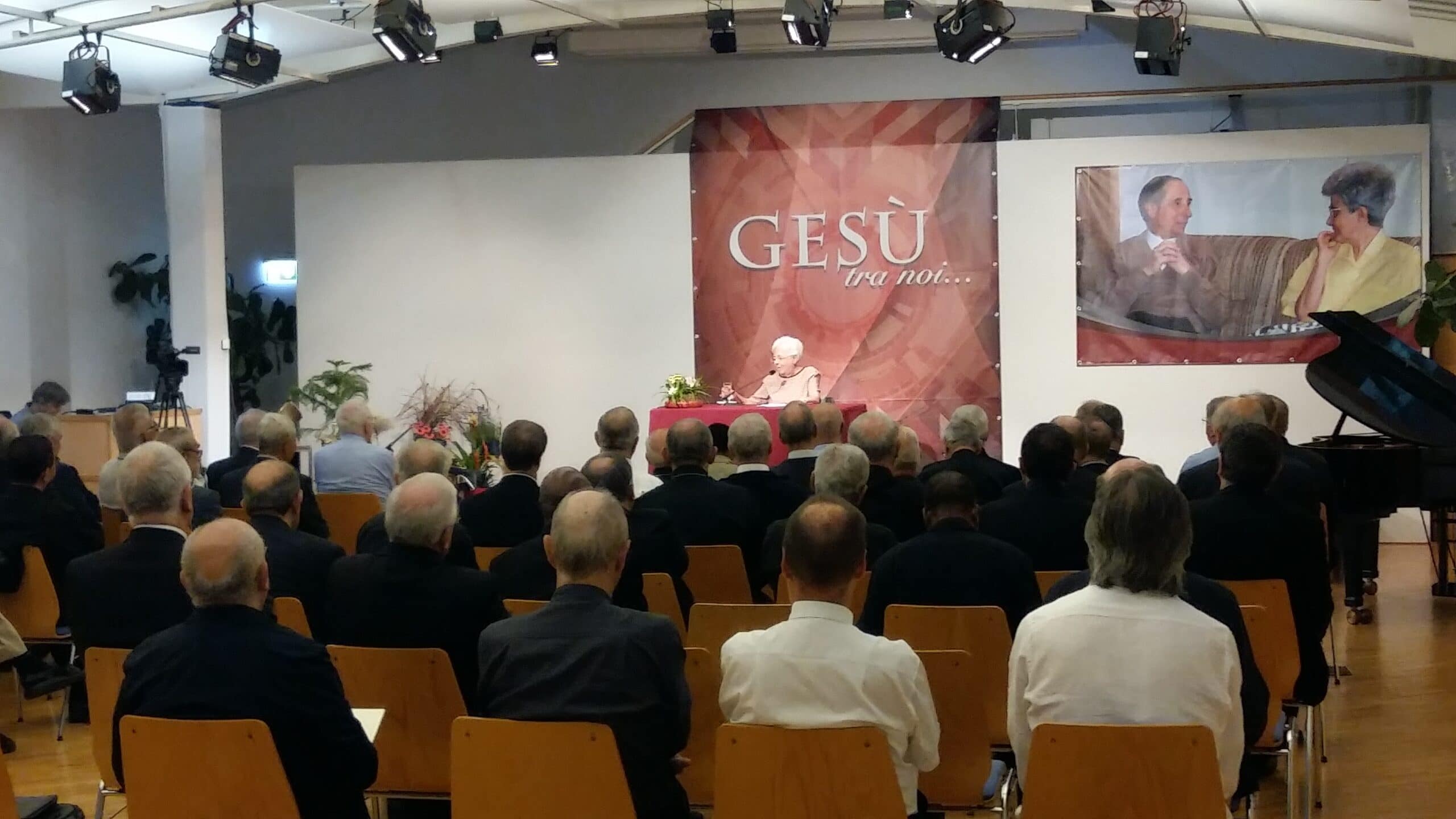 How can we respond to these challenges? Not from above, under the illusion of being able to impose solutions, but from below, following the way of Jesus who, by becoming small, becoming nothing to be a gift, took love to its very limit and in this way generated fraternity. Looking at the situation from this perspective allows us to recognize the potential for good even where, at first glance, there only seems to be evil. This is the path these Bishops want to tread in a decisive way, mindful that it is a matter – as the Apostolic Exhortation “Evangelii gaudium” recommends – of triggering processes that will only start to bear fruit over time. Nothing less is required today: being faithful to its origins, exploring new ways of being Church. With very precise paths, which include basing the proclamation and catechesis on the life of the Gospel and the communion of life; forming people in the spirituality of communion and the ecclesial and social “we”; creating “living environmental cells”; and listening to those who think differently to ourselves. “Show yourselves as a joyful group” was the wish of Pope Francis for this meeting of Bishops who are friends of the Focolare Movement. This is how it was because, by sharing sincerely with each other, they experienced God. Then everything changes at root level. Only by being can an enlightened doing be born.
How can we respond to these challenges? Not from above, under the illusion of being able to impose solutions, but from below, following the way of Jesus who, by becoming small, becoming nothing to be a gift, took love to its very limit and in this way generated fraternity. Looking at the situation from this perspective allows us to recognize the potential for good even where, at first glance, there only seems to be evil. This is the path these Bishops want to tread in a decisive way, mindful that it is a matter – as the Apostolic Exhortation “Evangelii gaudium” recommends – of triggering processes that will only start to bear fruit over time. Nothing less is required today: being faithful to its origins, exploring new ways of being Church. With very precise paths, which include basing the proclamation and catechesis on the life of the Gospel and the communion of life; forming people in the spirituality of communion and the ecclesial and social “we”; creating “living environmental cells”; and listening to those who think differently to ourselves. “Show yourselves as a joyful group” was the wish of Pope Francis for this meeting of Bishops who are friends of the Focolare Movement. This is how it was because, by sharing sincerely with each other, they experienced God. Then everything changes at root level. Only by being can an enlightened doing be born.
Hubertus Blaumeiser
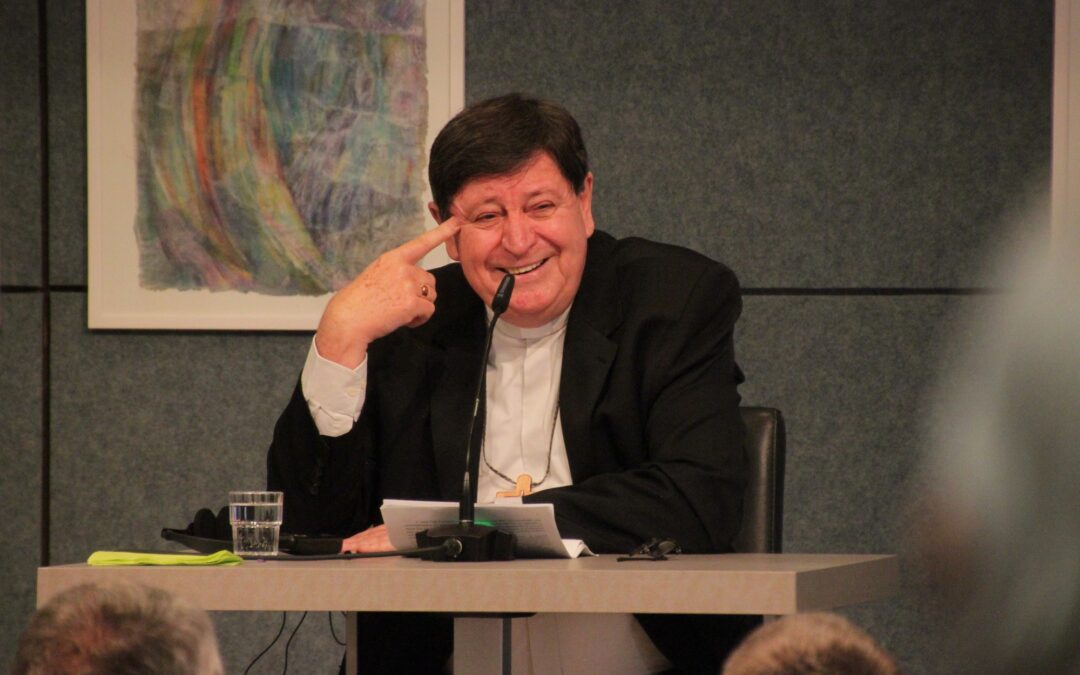
Sep 8, 2019 | Non categorizzato
Members of religious communities and movements belonging to fifty different orders, congregations and institutes gathered together in the ecumenical Focolare village of Ottmaring in Germany, 1-5 July 2019. The 100 participants were consecrated and religious men and women. Sr Tiziana Longhitano SFP and Fr Salvo D’Orto OMI, who coordinate this area of the Focolare Movement internationally, explain the significance of this event.
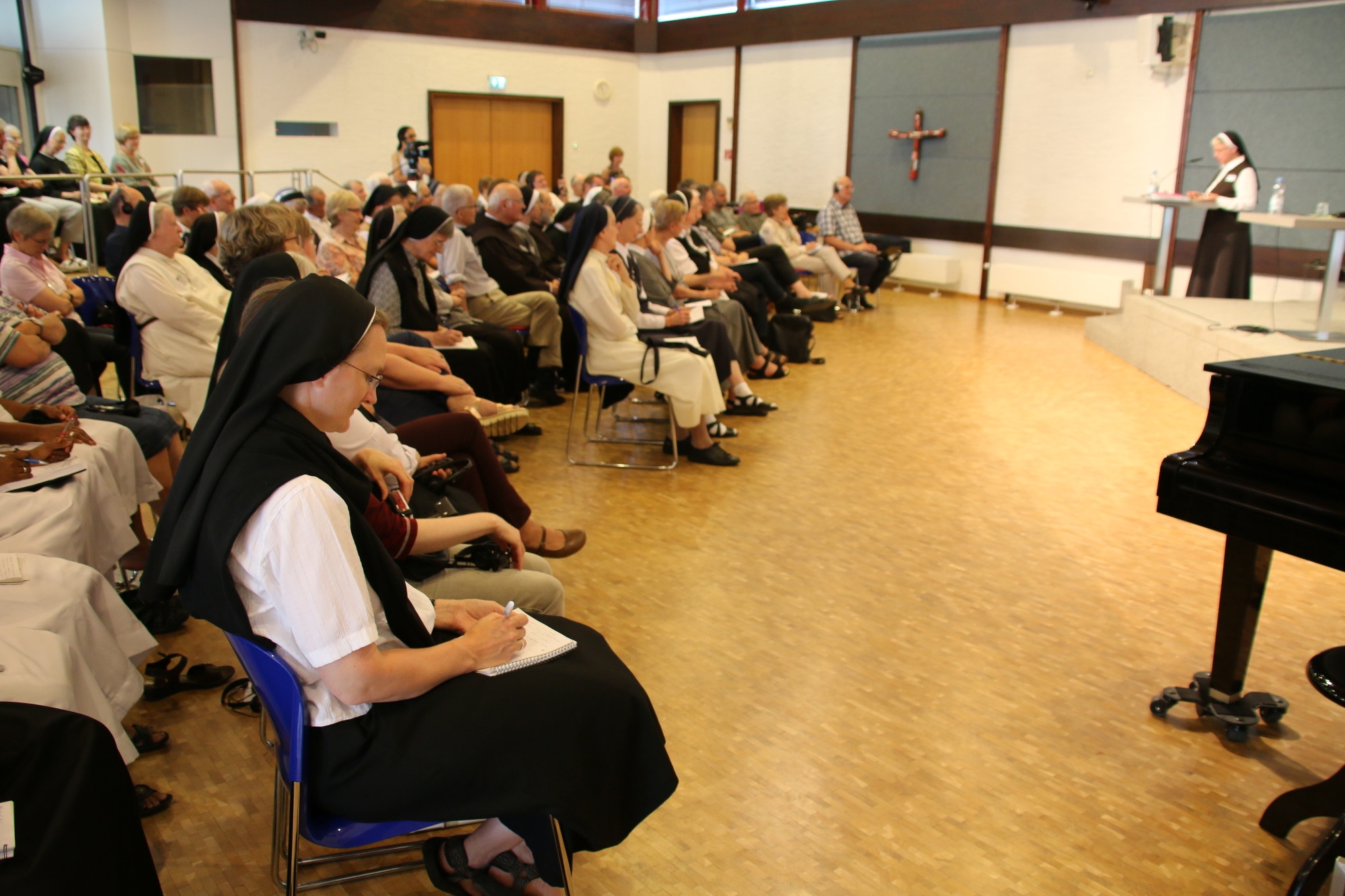
Photo: Ursula Haaf
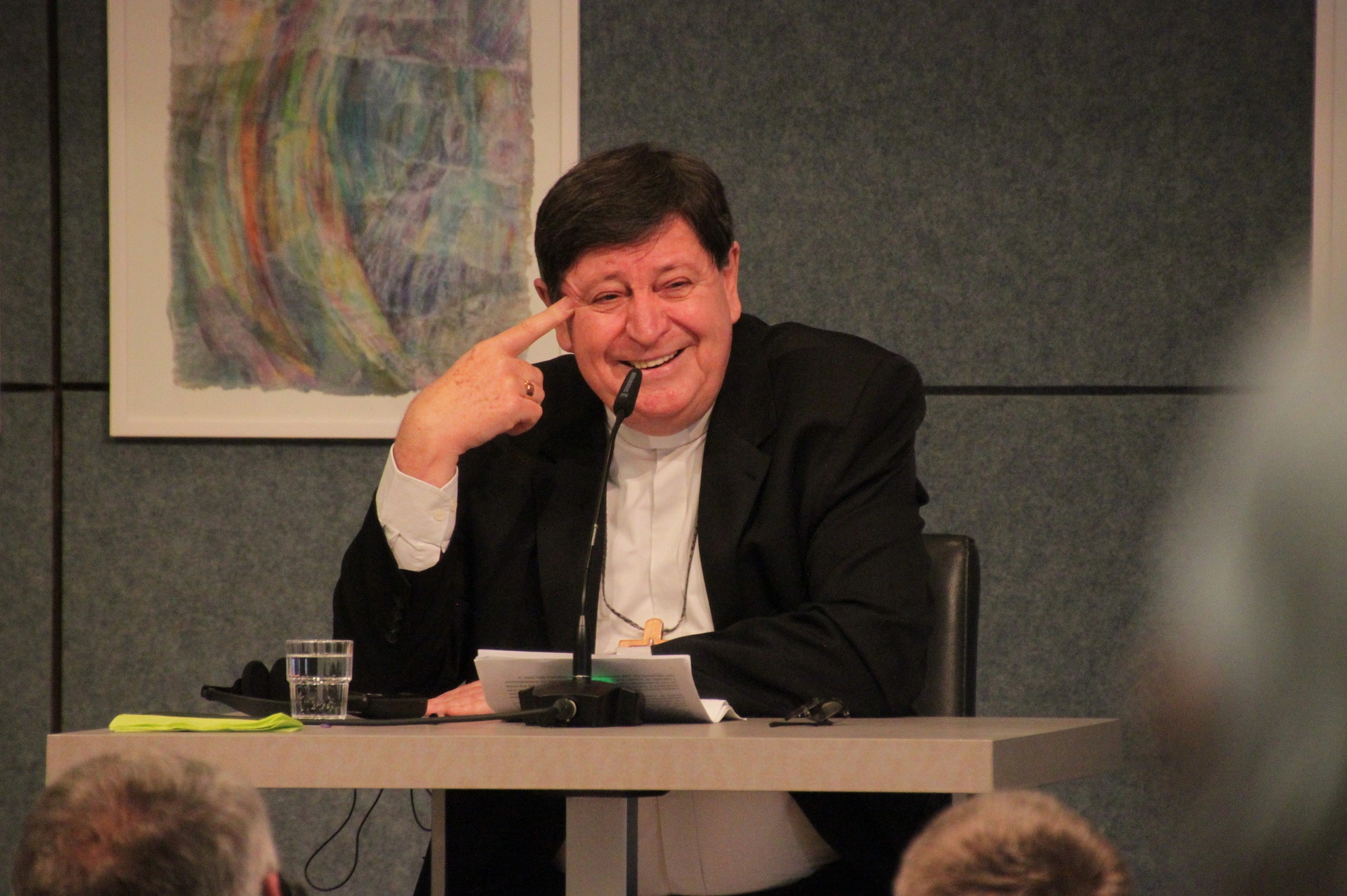
Photo: Maria Kny
Edited by Anna Lisa Innocenti


 The Ministry of Education, University and Research (Italy) announced the national competition, open to Junior and Senior High Schools, on their website https://www.miur.gov.it/competizioni-e-concorsi-per-studenti highlighting the theme: “One city is not enough”. Chiara Lubich, Citizen of the World To discover her illustrious figure, her commitment and life witness on the occasion of the CENTENARY OF HER BIRTH with the aim of building Unity and Fraternity among peoples The competition is being promoted by the Chiara Lubich/New Humanity Centre and by the Trentino Historical Museum Foundation, in collaboration with the Ministry of Education, University Studies & Research, as part of the centenary celebrations of Chiara Lubich’s birth. Who is it for? It is aimed at students of all Italian junior and senior high schools whose participation consists of writing a paper (in the form of written text or a multimedia presentation) on one of the following topics: – Chiara Lubich in the context of the Second World War – Chiara Lubich and the collapse of the Berlin Wall – Chiara Lubich “Citizen of the World”, in dialogue with peoples and cultures In addition – and this is the fourth thematic area – students can narrate positive experiences they have personally lived, thus documenting chronicles that are of a positive nature, inspired by the message conveyed by Lubich’s writings. What are the aims of the competition? The competition aims to develop a spirit of initiative by creating situations of didactic conflict by writers still unexplored by standard textbooks; it aims to make Chiara Lubich known as a significant protagonist of the twentieth century through a profound understanding of her vision of “a united world”; it also aims to accompany new generations in their active pursuit of paths of peace and brotherhood between different cultures, languages, religions and peoples.
The Ministry of Education, University and Research (Italy) announced the national competition, open to Junior and Senior High Schools, on their website https://www.miur.gov.it/competizioni-e-concorsi-per-studenti highlighting the theme: “One city is not enough”. Chiara Lubich, Citizen of the World To discover her illustrious figure, her commitment and life witness on the occasion of the CENTENARY OF HER BIRTH with the aim of building Unity and Fraternity among peoples The competition is being promoted by the Chiara Lubich/New Humanity Centre and by the Trentino Historical Museum Foundation, in collaboration with the Ministry of Education, University Studies & Research, as part of the centenary celebrations of Chiara Lubich’s birth. Who is it for? It is aimed at students of all Italian junior and senior high schools whose participation consists of writing a paper (in the form of written text or a multimedia presentation) on one of the following topics: – Chiara Lubich in the context of the Second World War – Chiara Lubich and the collapse of the Berlin Wall – Chiara Lubich “Citizen of the World”, in dialogue with peoples and cultures In addition – and this is the fourth thematic area – students can narrate positive experiences they have personally lived, thus documenting chronicles that are of a positive nature, inspired by the message conveyed by Lubich’s writings. What are the aims of the competition? The competition aims to develop a spirit of initiative by creating situations of didactic conflict by writers still unexplored by standard textbooks; it aims to make Chiara Lubich known as a significant protagonist of the twentieth century through a profound understanding of her vision of “a united world”; it also aims to accompany new generations in their active pursuit of paths of peace and brotherhood between different cultures, languages, religions and peoples.  What resources are available to discuss the proposed topics? Chiara Lubich is quite a well-known figure, however, both teachers and students are free to contact the Chiara Lubich Centre by leaving a message on their website or by writing to: concorso.studenti@centrochiaralubich.org The Trentino Historical Museum Foundation will also inaugurate an international multimedia exhibition entitled “Chiara Lubich World City” (opening from 7 December 2019 until November 2020), which will include specific tours for schools. What are the terms and conditions for participating in the competition? Works that are strictly unpublished must be received by 31 March 2020. The competition announcement gives precise indications on the way the projects may be transmitted. The evaluation commission will be composed of members of the Ministry of Education, University Studies & Research, the Chiara Lubich/New Humanity Centre and the Trentino Historical Museum Foundation. How will the awards be conferred? Awards will be presented to the winning schools during an official ceremony to be held by the end of the 2019-2020 school year, most probably in Rome.
What resources are available to discuss the proposed topics? Chiara Lubich is quite a well-known figure, however, both teachers and students are free to contact the Chiara Lubich Centre by leaving a message on their website or by writing to: concorso.studenti@centrochiaralubich.org The Trentino Historical Museum Foundation will also inaugurate an international multimedia exhibition entitled “Chiara Lubich World City” (opening from 7 December 2019 until November 2020), which will include specific tours for schools. What are the terms and conditions for participating in the competition? Works that are strictly unpublished must be received by 31 March 2020. The competition announcement gives precise indications on the way the projects may be transmitted. The evaluation commission will be composed of members of the Ministry of Education, University Studies & Research, the Chiara Lubich/New Humanity Centre and the Trentino Historical Museum Foundation. How will the awards be conferred? Awards will be presented to the winning schools during an official ceremony to be held by the end of the 2019-2020 school year, most probably in Rome. 
 “We need young people to open up new ways of working; we older people are happy to support them through our work and by sharing what we have and what we know.” This is what Koen Vanreusel said when he spoke about his commitment to young business men and women all over the world. Koen has 4 children and 9 grandchildren and is the managing director of
“We need young people to open up new ways of working; we older people are happy to support them through our work and by sharing what we have and what we know.” This is what Koen Vanreusel said when he spoke about his commitment to young business men and women all over the world. Koen has 4 children and 9 grandchildren and is the managing director of  During one of the annual meetings of European EoC managers, we met young people from Serbia and Hungary who showed great appreciation for our business model and so we decided to share it with them. We supported them when they started a company in one of their own countries and continued to do so as the enterprise developed: we are very happy that this involvement means that we can share knowledge and our way of working. Then, during the EoC international meeting in Nairobi, Kenya, we met a group of young Congolese entrepreneurs who were determined not to abandon their war torn country but to stay and help people in need by starting a company. We felt we wanted to remain in contact with these young people and accompany them in their experience by offering them our skills. We want new generations of business men and women to join the Economy of Communion. What effects could the EoC paradigm have if applied on a large scale? It can help to build a fairer society with a smaller gap between rich and poor and a lower rate of poverty. By working together we can discover that a better world is possible. We will tell you about it in October, in Brussels, on a day dedicated to this very topic.
During one of the annual meetings of European EoC managers, we met young people from Serbia and Hungary who showed great appreciation for our business model and so we decided to share it with them. We supported them when they started a company in one of their own countries and continued to do so as the enterprise developed: we are very happy that this involvement means that we can share knowledge and our way of working. Then, during the EoC international meeting in Nairobi, Kenya, we met a group of young Congolese entrepreneurs who were determined not to abandon their war torn country but to stay and help people in need by starting a company. We felt we wanted to remain in contact with these young people and accompany them in their experience by offering them our skills. We want new generations of business men and women to join the Economy of Communion. What effects could the EoC paradigm have if applied on a large scale? It can help to build a fairer society with a smaller gap between rich and poor and a lower rate of poverty. By working together we can discover that a better world is possible. We will tell you about it in October, in Brussels, on a day dedicated to this very topic. 
 The greatness and – we could even dare to say – the holiness of charismatic figures can be verified when God puts them to the test by taking away their health, their inspiration or even the work they founded. This gospel logic can be clearly seen in the life of Father Riccardo Lombardi, an Italian Jesuit, a great preacher and founder of the Movement for a Better World. This was highlighted by a conference in Rome organized by his Movement, 40 years after his death, in collaboration with the Focolare and the Community of Sant’Egidio. Faced with the power of self-destruction achieved by man and in the rubble at the end of the Second World War, Lombardi became a preacher of universal fraternity in the squares and on the radio, an activity for which they called him “God’s microphone”. After a famous exhortation that Pope Pius XII addressed to the Diocese of Rome in 1952, Father Lombardi wanted to create a group of people who would renew the Church according to a spirituality of communion. Andrea Riccardi, historian and founder of the Community of Sant’Egidio, stressed during the conference that Lombardi did and said what Pope Pius XII could not say and do publicly and thus also became the “microphone of the Pope”, to whom Lombardi was particularly attached.
The greatness and – we could even dare to say – the holiness of charismatic figures can be verified when God puts them to the test by taking away their health, their inspiration or even the work they founded. This gospel logic can be clearly seen in the life of Father Riccardo Lombardi, an Italian Jesuit, a great preacher and founder of the Movement for a Better World. This was highlighted by a conference in Rome organized by his Movement, 40 years after his death, in collaboration with the Focolare and the Community of Sant’Egidio. Faced with the power of self-destruction achieved by man and in the rubble at the end of the Second World War, Lombardi became a preacher of universal fraternity in the squares and on the radio, an activity for which they called him “God’s microphone”. After a famous exhortation that Pope Pius XII addressed to the Diocese of Rome in 1952, Father Lombardi wanted to create a group of people who would renew the Church according to a spirituality of communion. Andrea Riccardi, historian and founder of the Community of Sant’Egidio, stressed during the conference that Lombardi did and said what Pope Pius XII could not say and do publicly and thus also became the “microphone of the Pope”, to whom Lombardi was particularly attached. 


 The afternoon of this memorable day was dedicated to the inauguration of the restructured auditorium of the international headquarters of the Focolare Movement in Rocca di Papa (near Rome, Italy). It was also the occasion for Maria Voce to present to both assemblies the thematic spiritual talk for the forthcoming year, centred on the reality of Jesus present in the midst of “two or three united in his name” (cf Mt 18:20). This is the Alpha and Omega of the Movement’s spirituality, declared Focolare President, as she spoke movingly and very personally, at this the start of the final year of her term of office.
The afternoon of this memorable day was dedicated to the inauguration of the restructured auditorium of the international headquarters of the Focolare Movement in Rocca di Papa (near Rome, Italy). It was also the occasion for Maria Voce to present to both assemblies the thematic spiritual talk for the forthcoming year, centred on the reality of Jesus present in the midst of “two or three united in his name” (cf Mt 18:20). This is the Alpha and Omega of the Movement’s spirituality, declared Focolare President, as she spoke movingly and very personally, at this the start of the final year of her term of office. 
 What do you think we can expect from this event? I think there will be great leadership by young people both in thought and practice. They will share their ideas about the world, which they are already changing, concerning the environment, the economy, development, poverty. It will not be a conference, but the start of a process, although one with a slow pace that allows us to think and ask ourselves, for example, in St. Francis’ homeland and footsteps, what it means to build a new economy, and who the marginalised of today really are. It will be primarily a moment in which young people draw up a solemn pact with Pope Francis, assuring him of their commitment to change the economy. This will be the heart of the event. After all, young people have clear ideas about… Young people make things interesting. They are the first to react to changes, because they’re the ones who most understand them. There are so many valuable experiences throughout the world in business and start-ups. Young people think about the economy differently, but the adults – who have the power and university chairs – are not able to listen and give them space. Their thinking is 20 years behind the times, while young people have something to say. In Assisi they will be the ones to speak; the adults will make themselves available to support and listen.
What do you think we can expect from this event? I think there will be great leadership by young people both in thought and practice. They will share their ideas about the world, which they are already changing, concerning the environment, the economy, development, poverty. It will not be a conference, but the start of a process, although one with a slow pace that allows us to think and ask ourselves, for example, in St. Francis’ homeland and footsteps, what it means to build a new economy, and who the marginalised of today really are. It will be primarily a moment in which young people draw up a solemn pact with Pope Francis, assuring him of their commitment to change the economy. This will be the heart of the event. After all, young people have clear ideas about… Young people make things interesting. They are the first to react to changes, because they’re the ones who most understand them. There are so many valuable experiences throughout the world in business and start-ups. Young people think about the economy differently, but the adults – who have the power and university chairs – are not able to listen and give them space. Their thinking is 20 years behind the times, while young people have something to say. In Assisi they will be the ones to speak; the adults will make themselves available to support and listen. 
 As the 190 delegates were being introduced to Focolare President Maria Voce and Co-President Jesús Morán, the overwhelming impression was of a parliament for the under-30s, serving not a single nation but the whole world. These young members of the Focolare Movement from 67 different countries have convened in Castel Gandolfo, near Rome, Italy, for the Foocolare’s first Youth Assembly of Gen, young religious men and women, seminarians, together with youth active in the Parish and Diocesan movements of the Focolare. “We’re not only here to organize and plan, but mainly to get to know each other and communicate what is actually motivating us, what’s at the heart of our choice to work towards a more united world,” explained one of the Assembly team.
As the 190 delegates were being introduced to Focolare President Maria Voce and Co-President Jesús Morán, the overwhelming impression was of a parliament for the under-30s, serving not a single nation but the whole world. These young members of the Focolare Movement from 67 different countries have convened in Castel Gandolfo, near Rome, Italy, for the Foocolare’s first Youth Assembly of Gen, young religious men and women, seminarians, together with youth active in the Parish and Diocesan movements of the Focolare. “We’re not only here to organize and plan, but mainly to get to know each other and communicate what is actually motivating us, what’s at the heart of our choice to work towards a more united world,” explained one of the Assembly team.  The delegates are drawn from different geographical, cultural and religious backgrounds. They are active in areas such as justice and peace, disarmament, humane economy, environmental campaigning, dialogue between religions and ethnic groups. Many have been involved in challenging summer projects such as the Gen Congress in Amman, Jordan for young Focolare members in different nations of the Middle East and beyond; another in Oceania; workshops tackling legal and economic inequalities, as well as summer-camps organized by the Parish and Diocesan Movements. The Assembly is designed to promote sharing, learning and planning, drawing on the support of experts. It is distinctly “hands-on”. For example tackling issues of identity and life choices (with Fr Vincenzo Di Pilato); how to be protagonists and effective leaders (with Jonathon Michelon); witnessing and participation (with Sr Alessandra Smerilli). The Catholic Church’s recent synod dedicated to youth led to the popularly-received “Christus Vivit” document, which will also be discussed during the workshops (with Francisco Canzani).
The delegates are drawn from different geographical, cultural and religious backgrounds. They are active in areas such as justice and peace, disarmament, humane economy, environmental campaigning, dialogue between religions and ethnic groups. Many have been involved in challenging summer projects such as the Gen Congress in Amman, Jordan for young Focolare members in different nations of the Middle East and beyond; another in Oceania; workshops tackling legal and economic inequalities, as well as summer-camps organized by the Parish and Diocesan Movements. The Assembly is designed to promote sharing, learning and planning, drawing on the support of experts. It is distinctly “hands-on”. For example tackling issues of identity and life choices (with Fr Vincenzo Di Pilato); how to be protagonists and effective leaders (with Jonathon Michelon); witnessing and participation (with Sr Alessandra Smerilli). The Catholic Church’s recent synod dedicated to youth led to the popularly-received “Christus Vivit” document, which will also be discussed during the workshops (with Francisco Canzani).  To guide all this activity, the Focolare President proposed three key words: unity, courage, communication. Unity – Maria Voce encouraged the young people to “forget” where and what they come from, in order to be able to live complete mutual love and so experience the unity that comes from this. Courage – “I expect you to have such courage. I also expect your courage to test and challenge the rest of us”. Inviting them to speak out and share, she encouraged them not to shy away from making criticisms, but always to express them in “a constructive spirit”. Finally, she urged them to communicate the charism of unity. “You must be prepared to give what you have received to the new generations. This communication can only happen through people who live the spirituality, who want this charism and who then communicate it”. Everything covered during the Assembly will be summarized in a final document containing the contributions and concerns of the young generation of the Focolare as they seek ways of working ever more closely together for their shared goal.
To guide all this activity, the Focolare President proposed three key words: unity, courage, communication. Unity – Maria Voce encouraged the young people to “forget” where and what they come from, in order to be able to live complete mutual love and so experience the unity that comes from this. Courage – “I expect you to have such courage. I also expect your courage to test and challenge the rest of us”. Inviting them to speak out and share, she encouraged them not to shy away from making criticisms, but always to express them in “a constructive spirit”. Finally, she urged them to communicate the charism of unity. “You must be prepared to give what you have received to the new generations. This communication can only happen through people who live the spirituality, who want this charism and who then communicate it”. Everything covered during the Assembly will be summarized in a final document containing the contributions and concerns of the young generation of the Focolare as they seek ways of working ever more closely together for their shared goal. 
 A kind of tsunami has struck the Church as a institution in recent years. The revelation of scandalous abuses has shaken the credibility of the Church to its very core, a Church that for some time has seemed to be in decline in many traditionally Christian countries. And this is not the only scourge afflicting Christian communities across the world. Urbanisation, poverty, war, corruption in society and the Church itself, political and cultural pressures, all kinds of intolerances and religious fundamentalism, a lack of opportunities for development and serious risks to the environment are leaving many people hopeless and overwhelmed. These are just some of the “wounds” that 61 Bishops from four continents who know and live the spirituality of the Focolare shared when they met from 2 to 10 August near Graz in Austria. Even though they came together primarily for a meeting to deepen their spirituality and live fraternity together for a few days, they listened together to the “cry” of their people. Otherwise, how else could they be witnesses of a crucified and risen God who took on every evil and responded to it?! We must not stop at theories – they said – or give in to pessimism but go to the roots. On the Church front, individualism and clericalism were highlighted, a lack of formation and coherent witness, the need for solid spirituality and accompaniment, the need to grow in the capacity to listen and dialogue.
A kind of tsunami has struck the Church as a institution in recent years. The revelation of scandalous abuses has shaken the credibility of the Church to its very core, a Church that for some time has seemed to be in decline in many traditionally Christian countries. And this is not the only scourge afflicting Christian communities across the world. Urbanisation, poverty, war, corruption in society and the Church itself, political and cultural pressures, all kinds of intolerances and religious fundamentalism, a lack of opportunities for development and serious risks to the environment are leaving many people hopeless and overwhelmed. These are just some of the “wounds” that 61 Bishops from four continents who know and live the spirituality of the Focolare shared when they met from 2 to 10 August near Graz in Austria. Even though they came together primarily for a meeting to deepen their spirituality and live fraternity together for a few days, they listened together to the “cry” of their people. Otherwise, how else could they be witnesses of a crucified and risen God who took on every evil and responded to it?! We must not stop at theories – they said – or give in to pessimism but go to the roots. On the Church front, individualism and clericalism were highlighted, a lack of formation and coherent witness, the need for solid spirituality and accompaniment, the need to grow in the capacity to listen and dialogue.  How can we respond to these challenges? Not from above, under the illusion of being able to impose solutions, but from below, following the way of Jesus who, by becoming small, becoming nothing to be a gift, took love to its very limit and in this way generated fraternity. Looking at the situation from this perspective allows us to recognize the potential for good even where, at first glance, there only seems to be evil. This is the path these Bishops want to tread in a decisive way, mindful that it is a matter – as the Apostolic Exhortation “Evangelii gaudium” recommends – of triggering processes that will only start to bear fruit over time. Nothing less is required today: being faithful to its origins, exploring new ways of being Church. With very precise paths, which include basing the proclamation and catechesis on the life of the Gospel and the communion of life; forming people in the spirituality of communion and the ecclesial and social “we”; creating “living environmental cells”; and listening to those who think differently to ourselves. “Show yourselves as a joyful group” was the wish of Pope Francis for this meeting of Bishops who are friends of the Focolare Movement. This is how it was because, by sharing sincerely with each other, they experienced God. Then everything changes at root level. Only by being can an enlightened doing be born.
How can we respond to these challenges? Not from above, under the illusion of being able to impose solutions, but from below, following the way of Jesus who, by becoming small, becoming nothing to be a gift, took love to its very limit and in this way generated fraternity. Looking at the situation from this perspective allows us to recognize the potential for good even where, at first glance, there only seems to be evil. This is the path these Bishops want to tread in a decisive way, mindful that it is a matter – as the Apostolic Exhortation “Evangelii gaudium” recommends – of triggering processes that will only start to bear fruit over time. Nothing less is required today: being faithful to its origins, exploring new ways of being Church. With very precise paths, which include basing the proclamation and catechesis on the life of the Gospel and the communion of life; forming people in the spirituality of communion and the ecclesial and social “we”; creating “living environmental cells”; and listening to those who think differently to ourselves. “Show yourselves as a joyful group” was the wish of Pope Francis for this meeting of Bishops who are friends of the Focolare Movement. This is how it was because, by sharing sincerely with each other, they experienced God. Then everything changes at root level. Only by being can an enlightened doing be born. 

